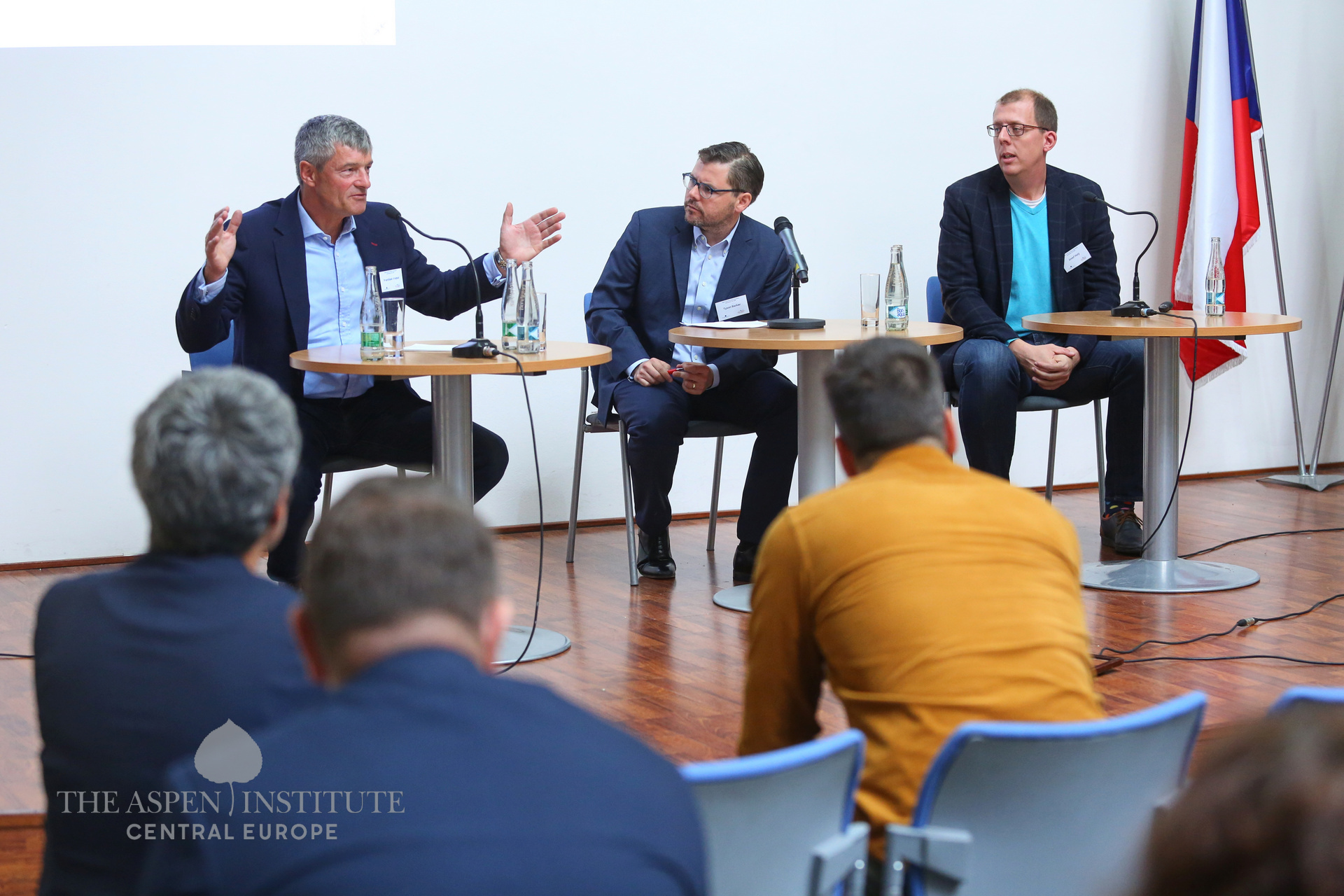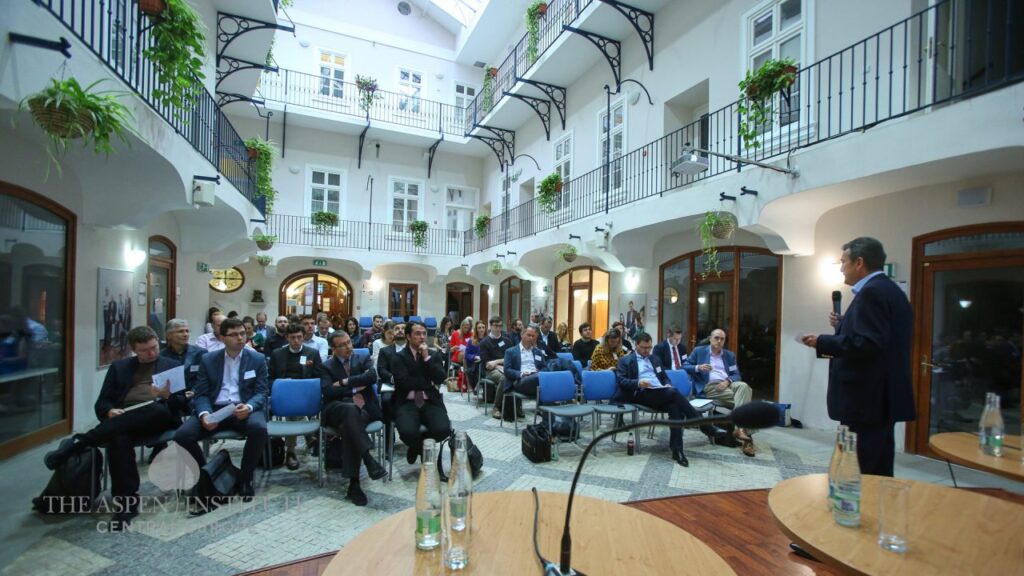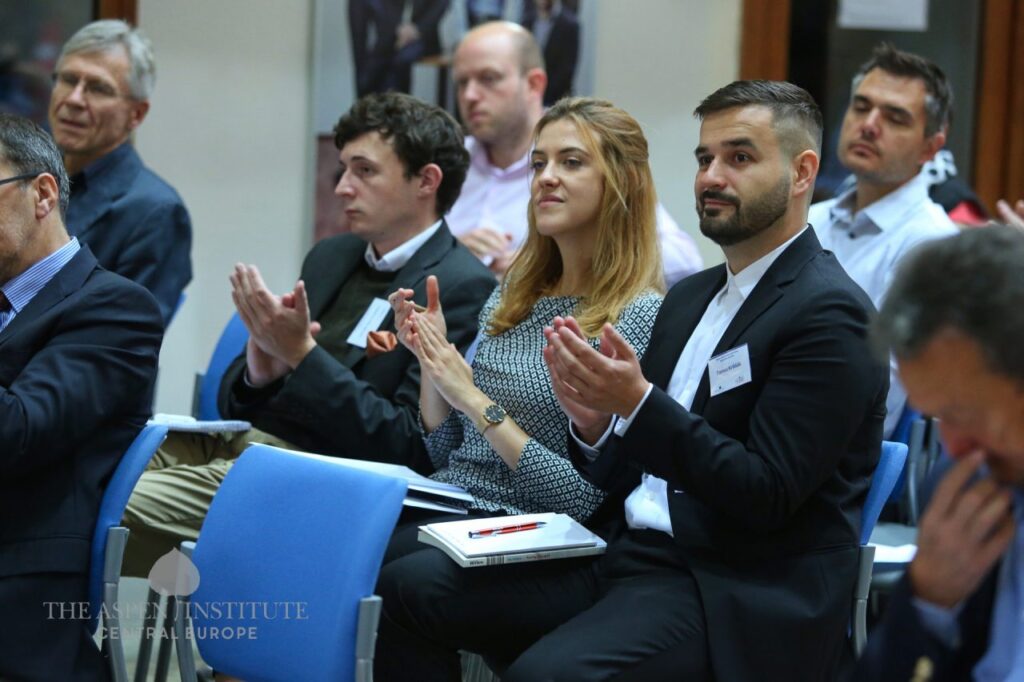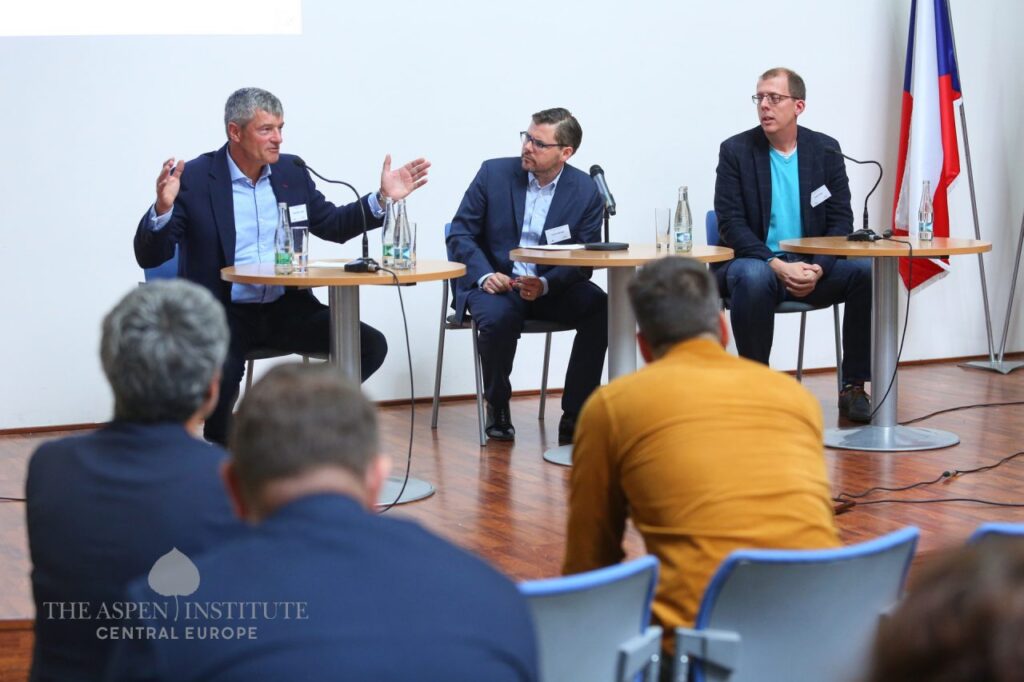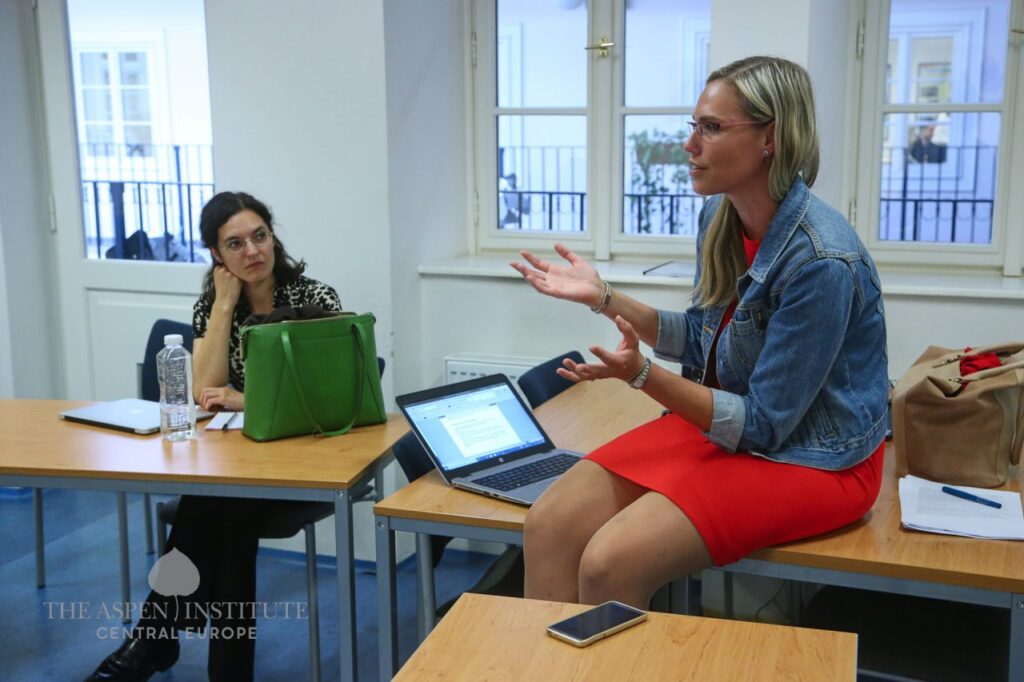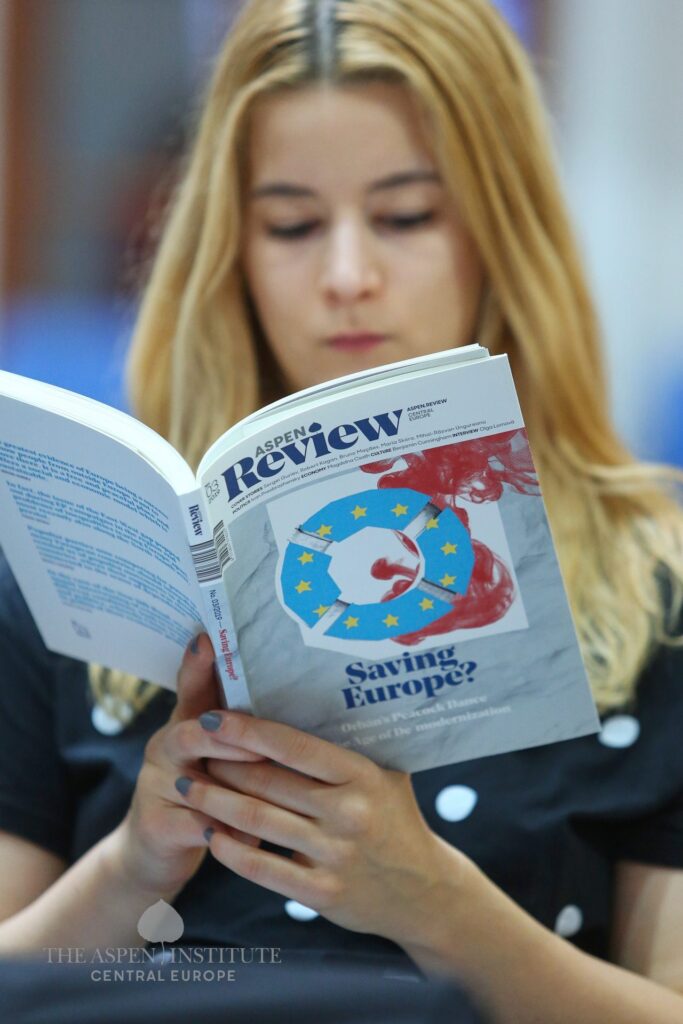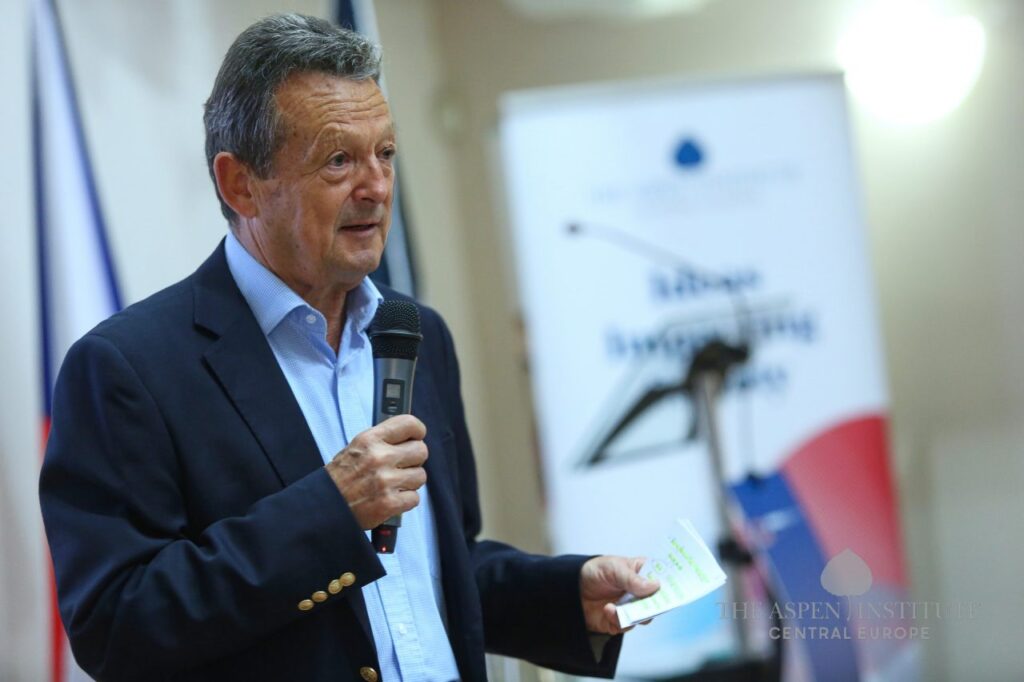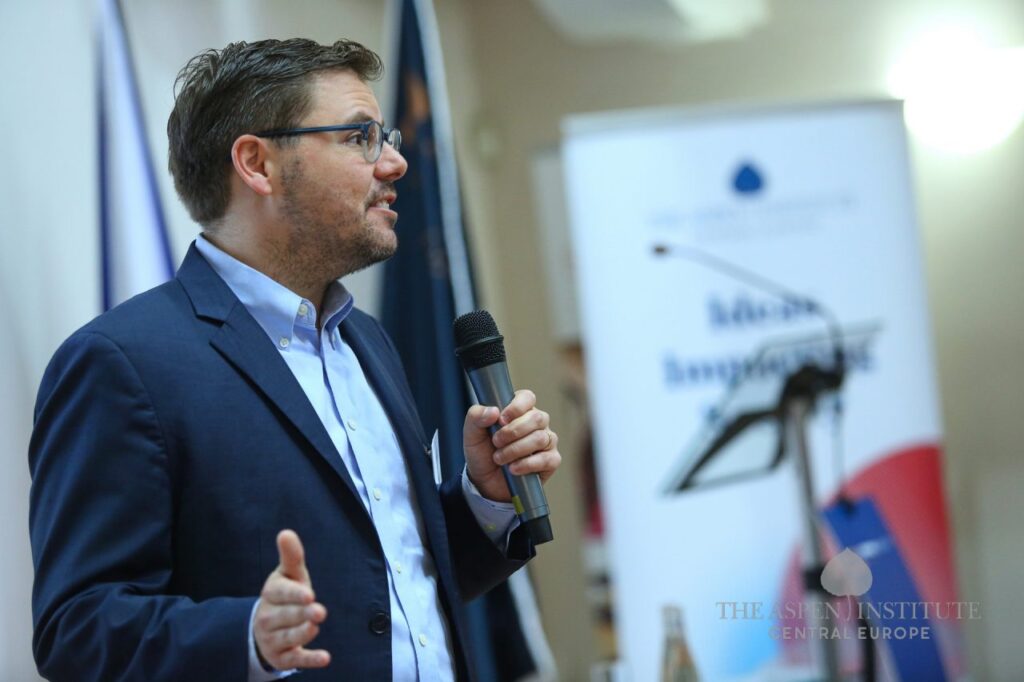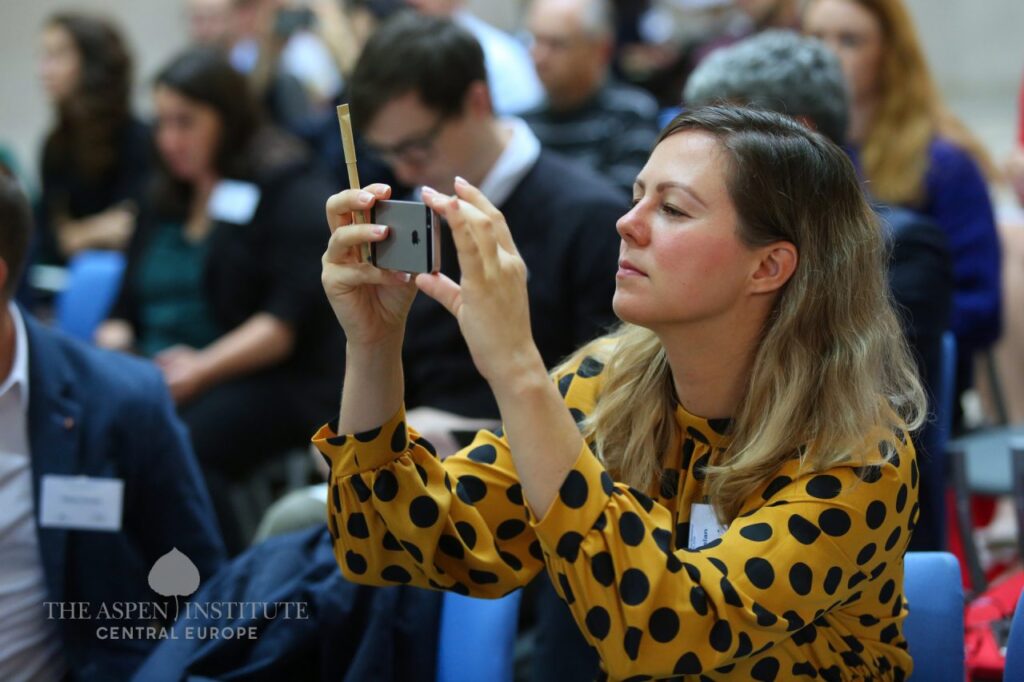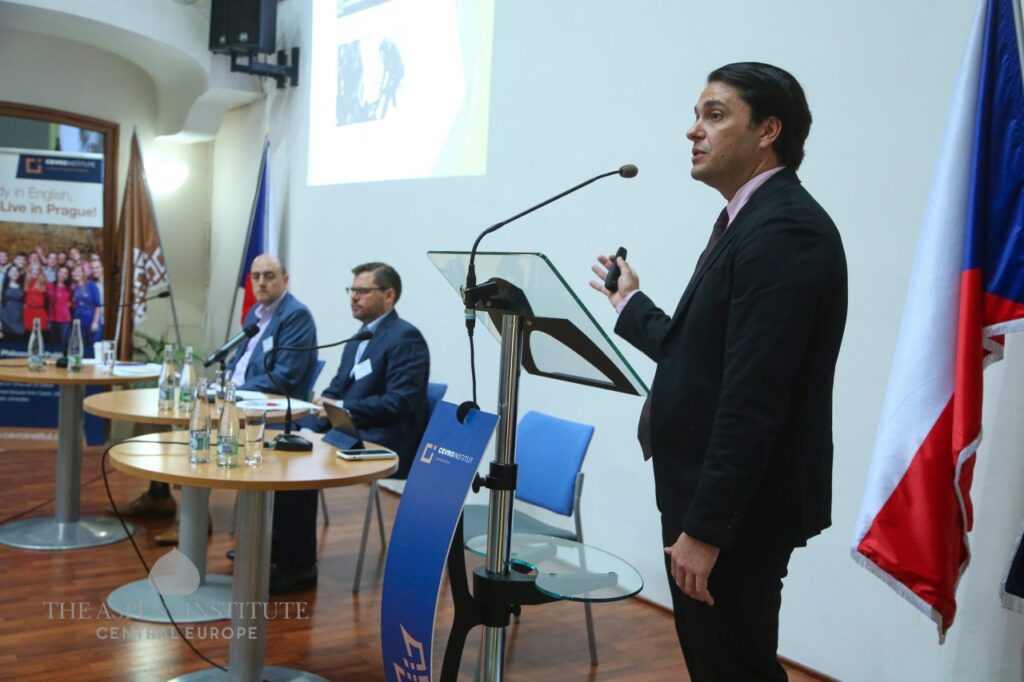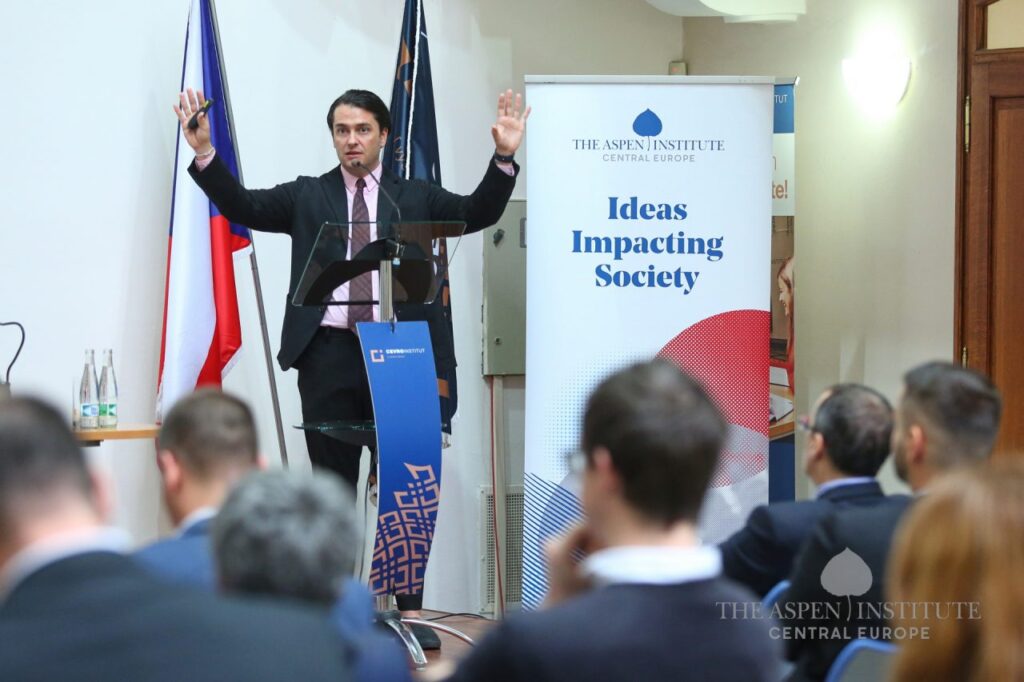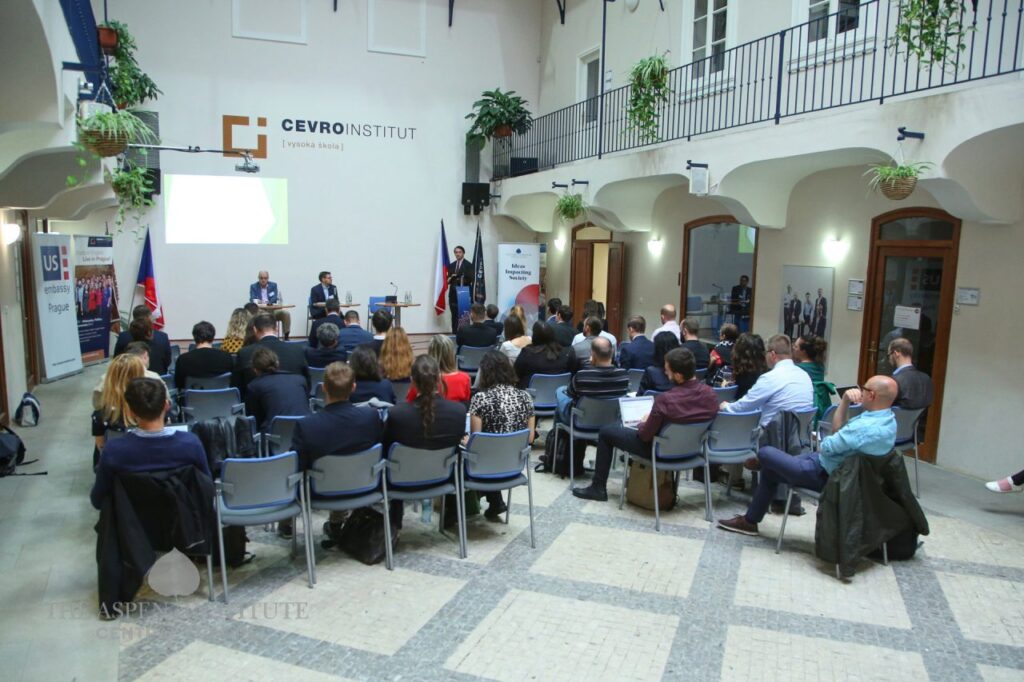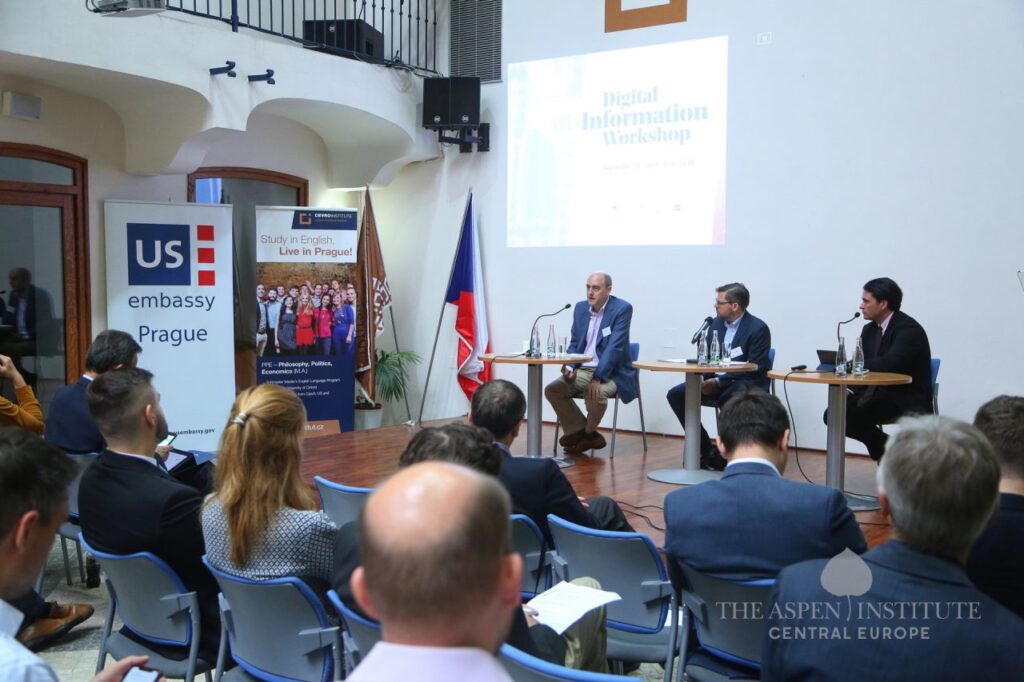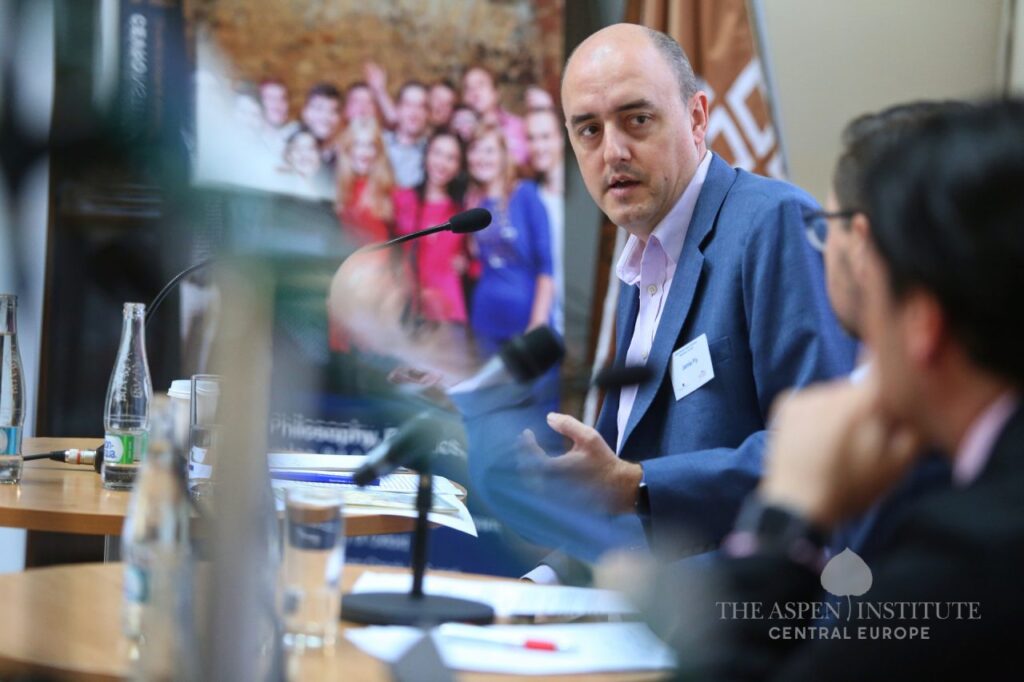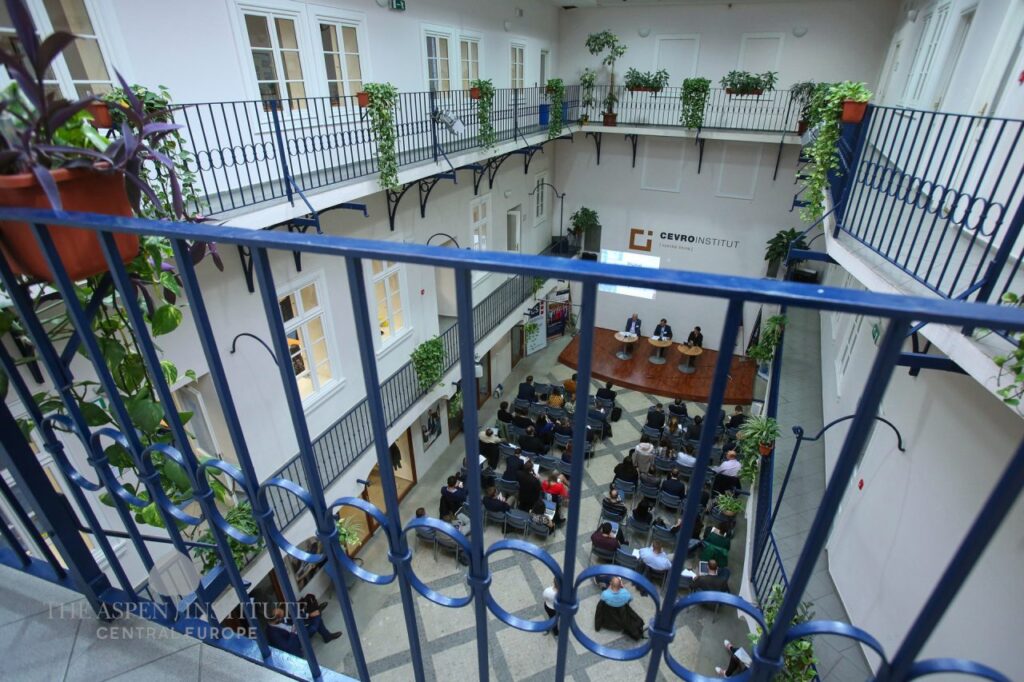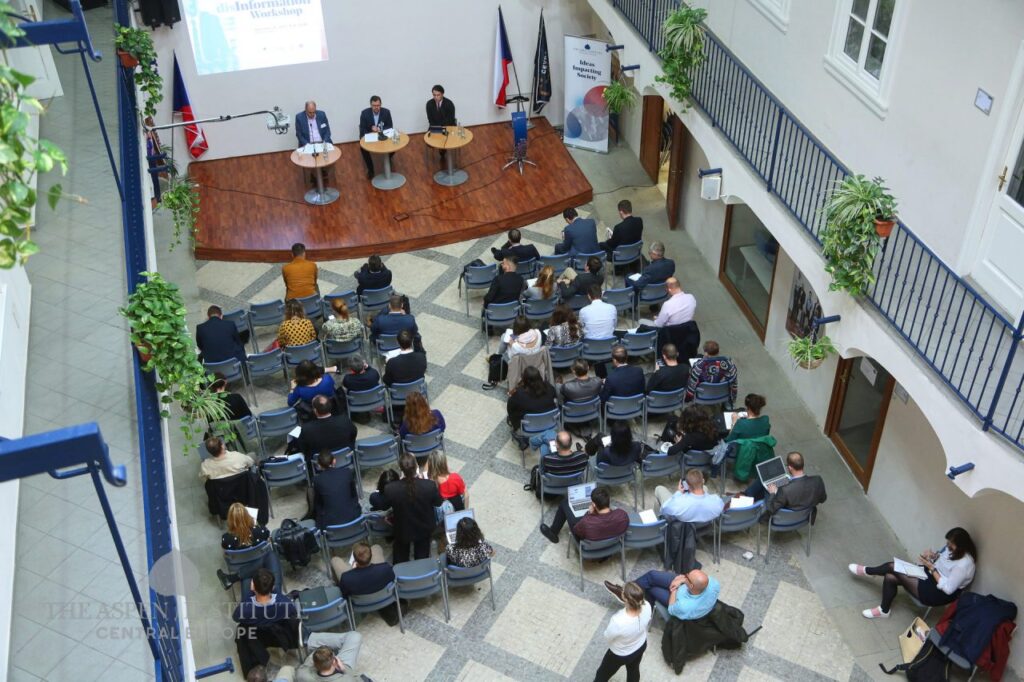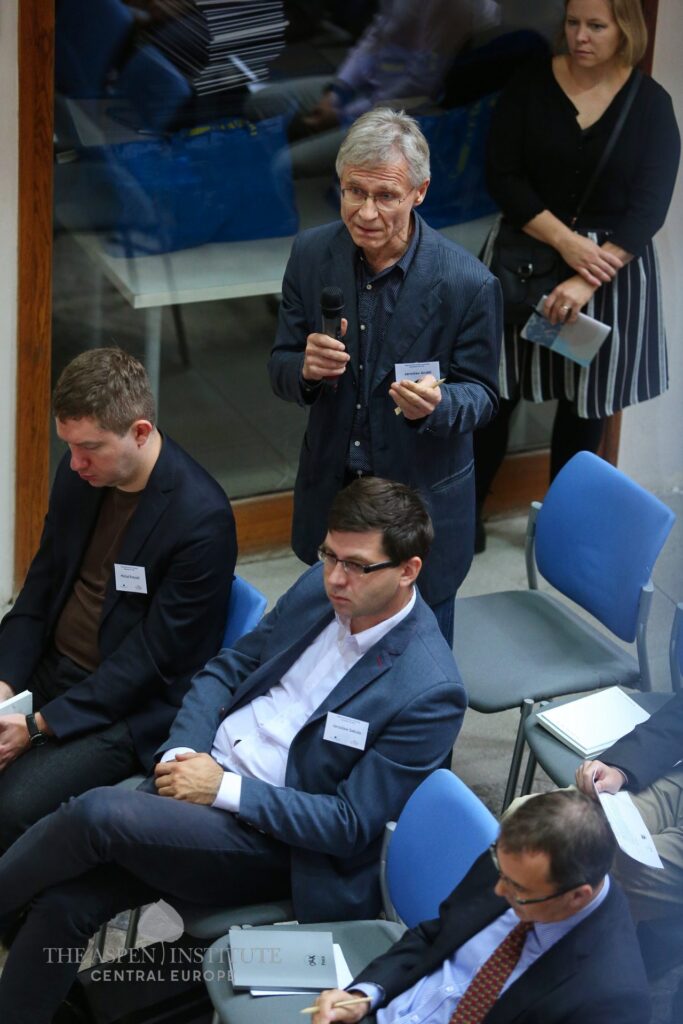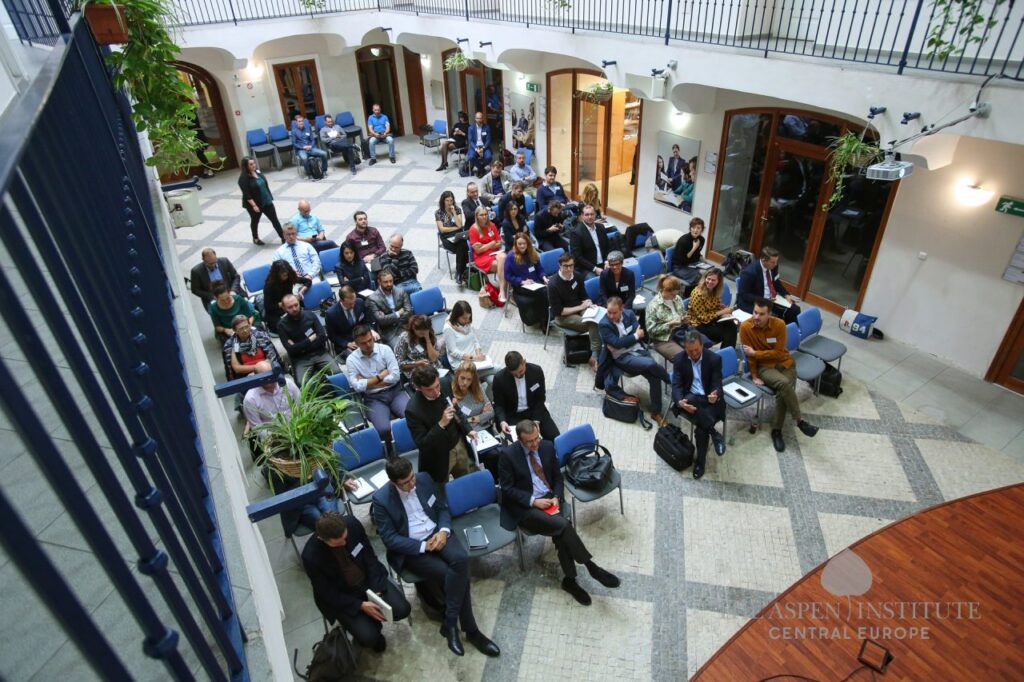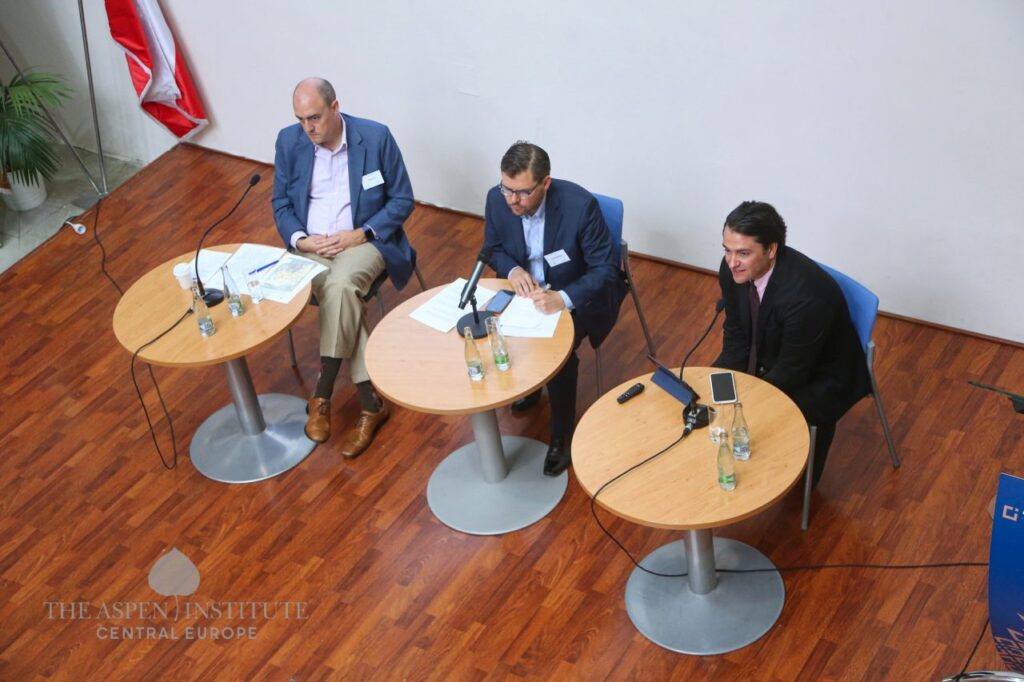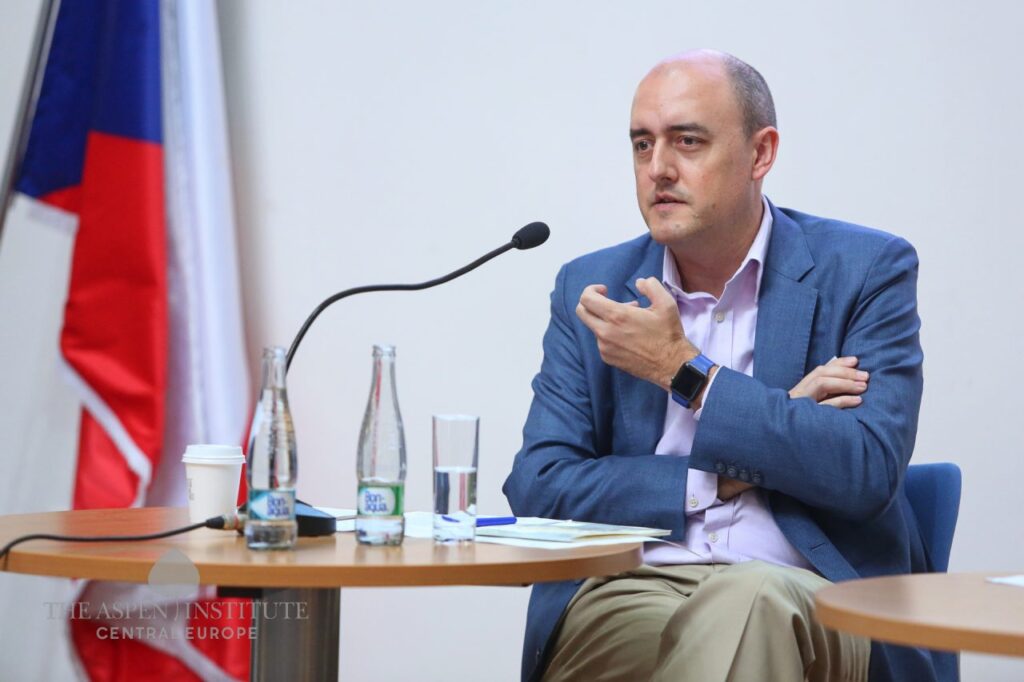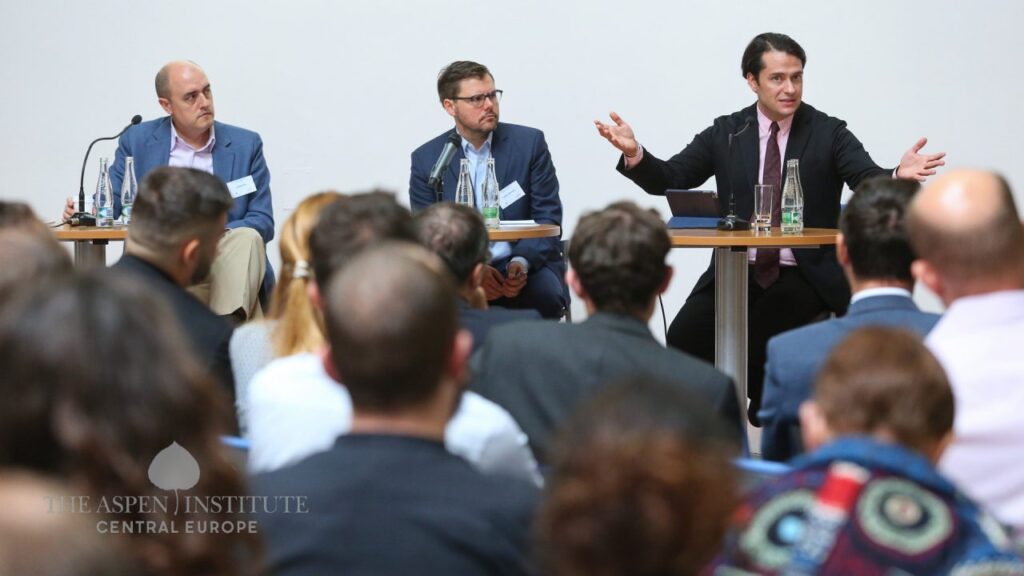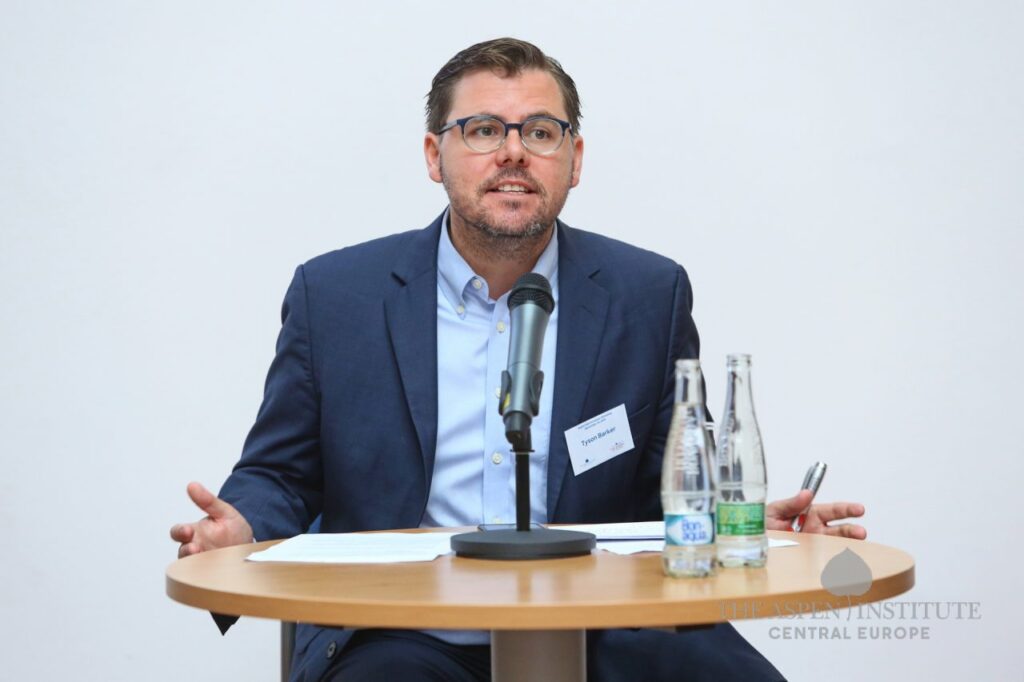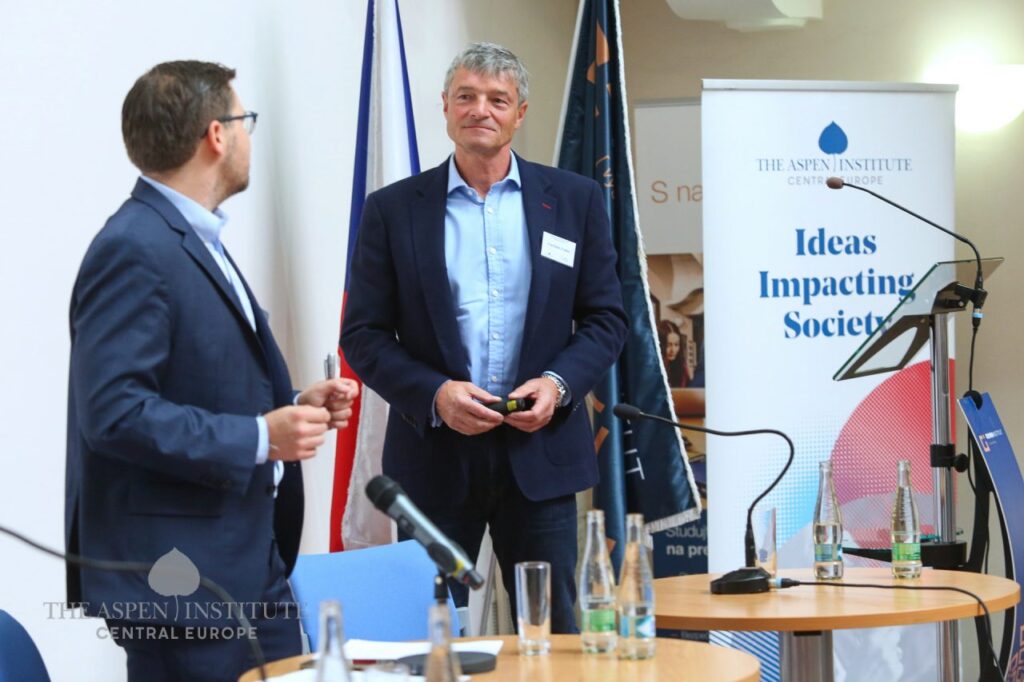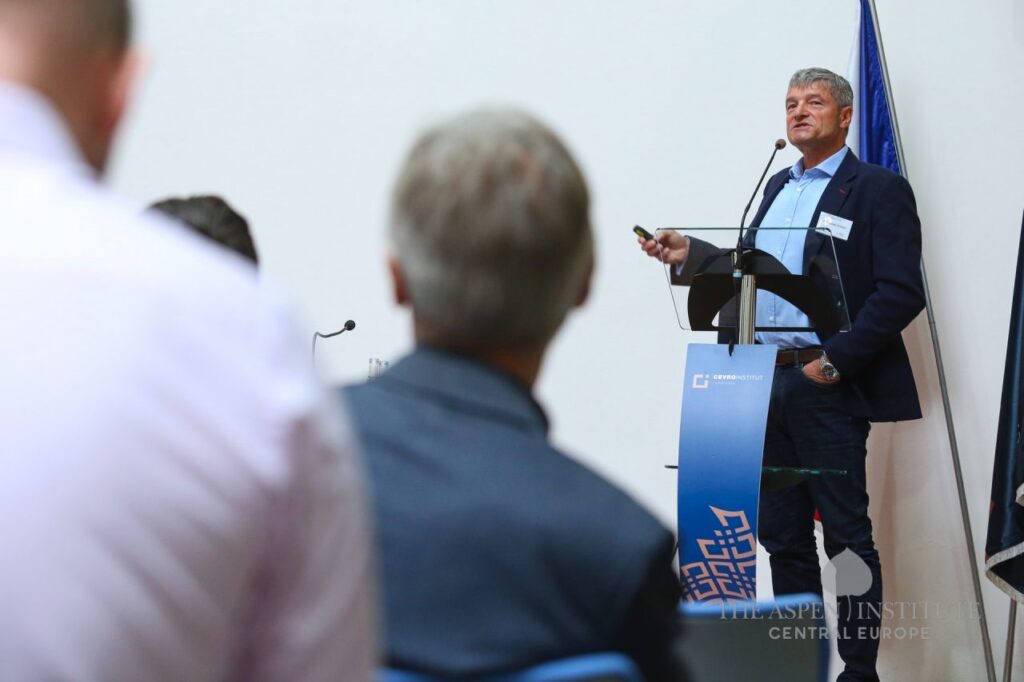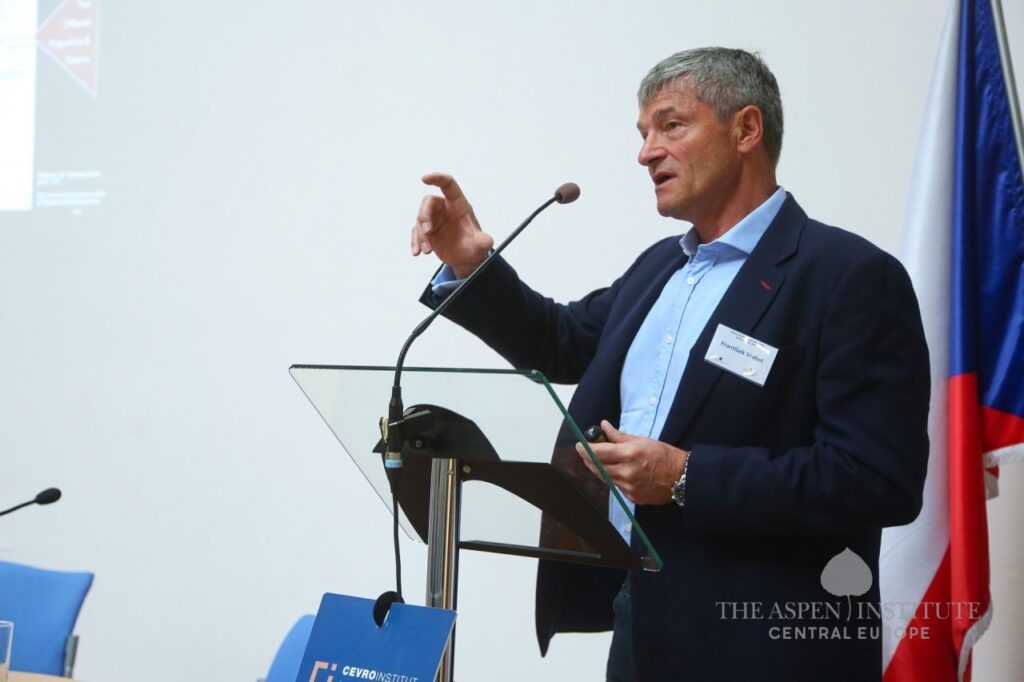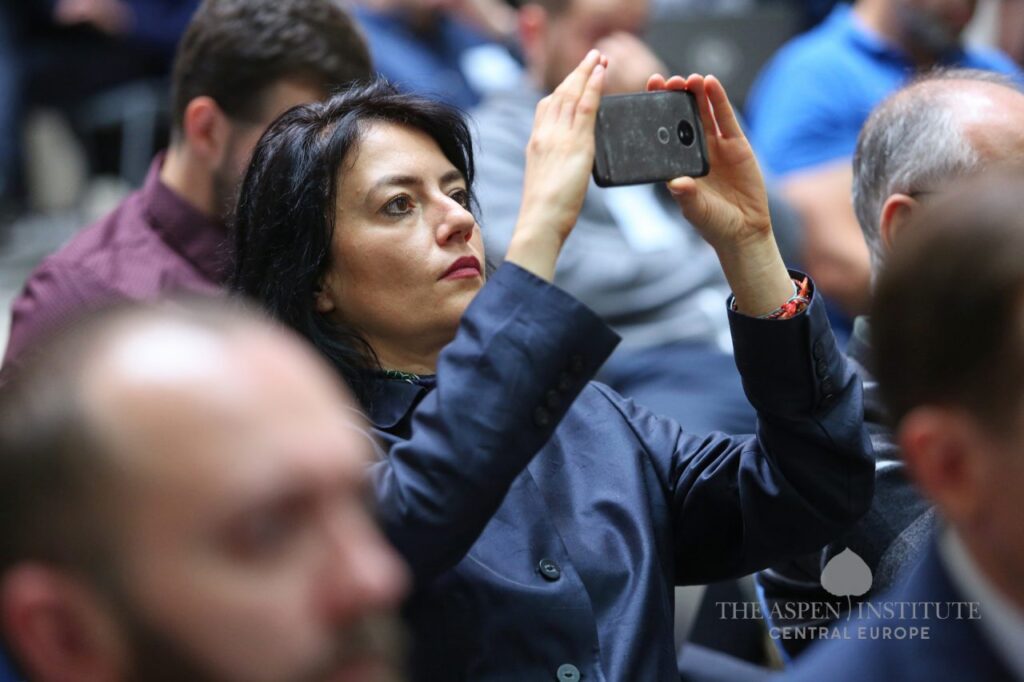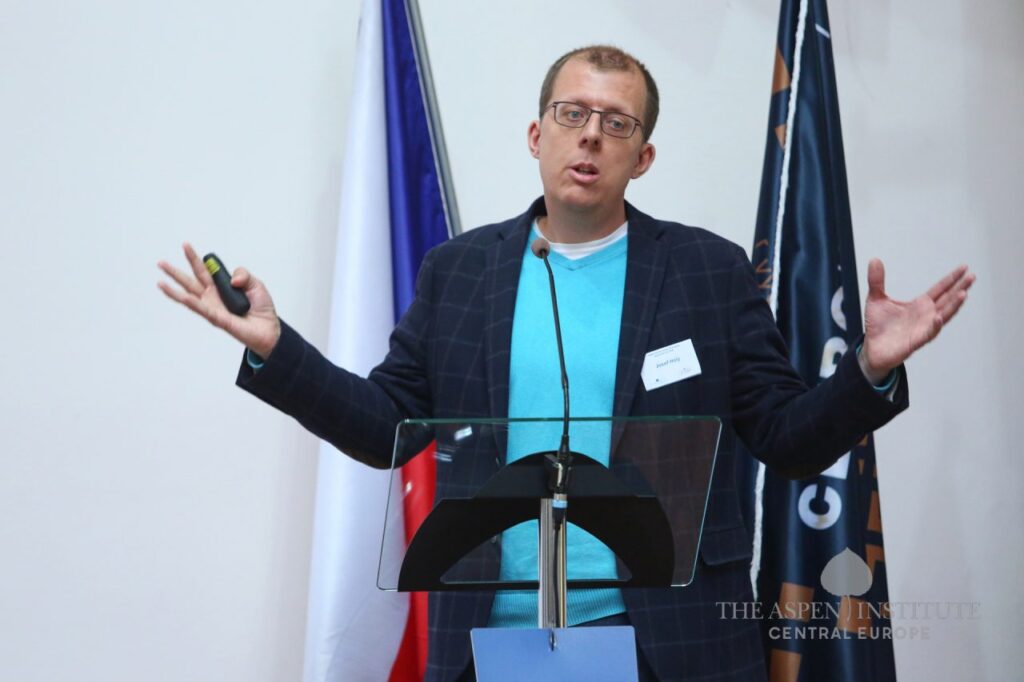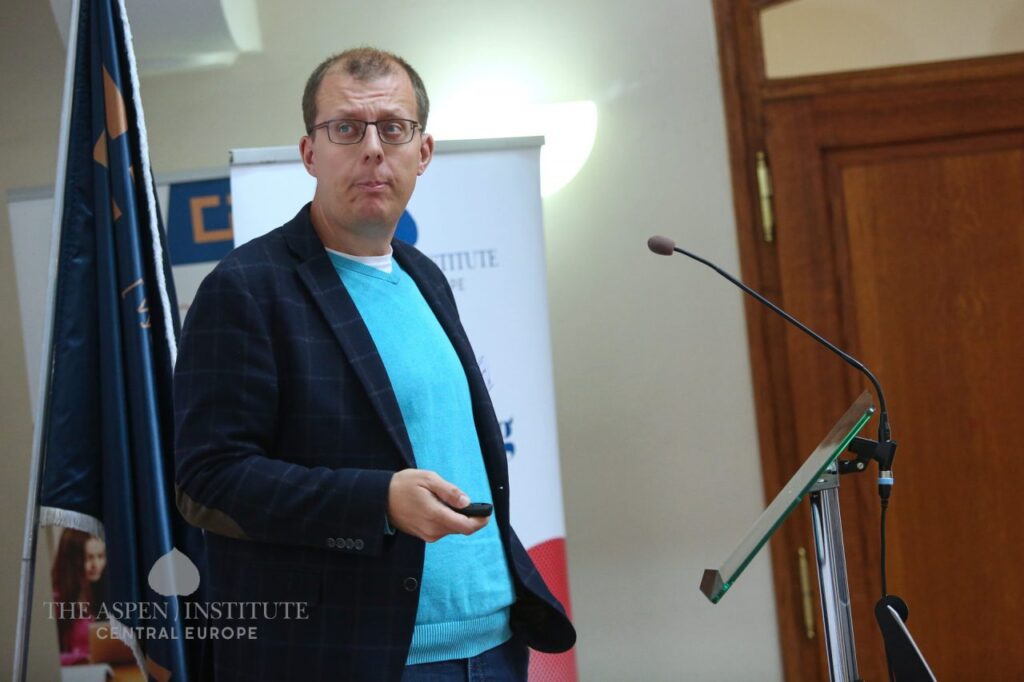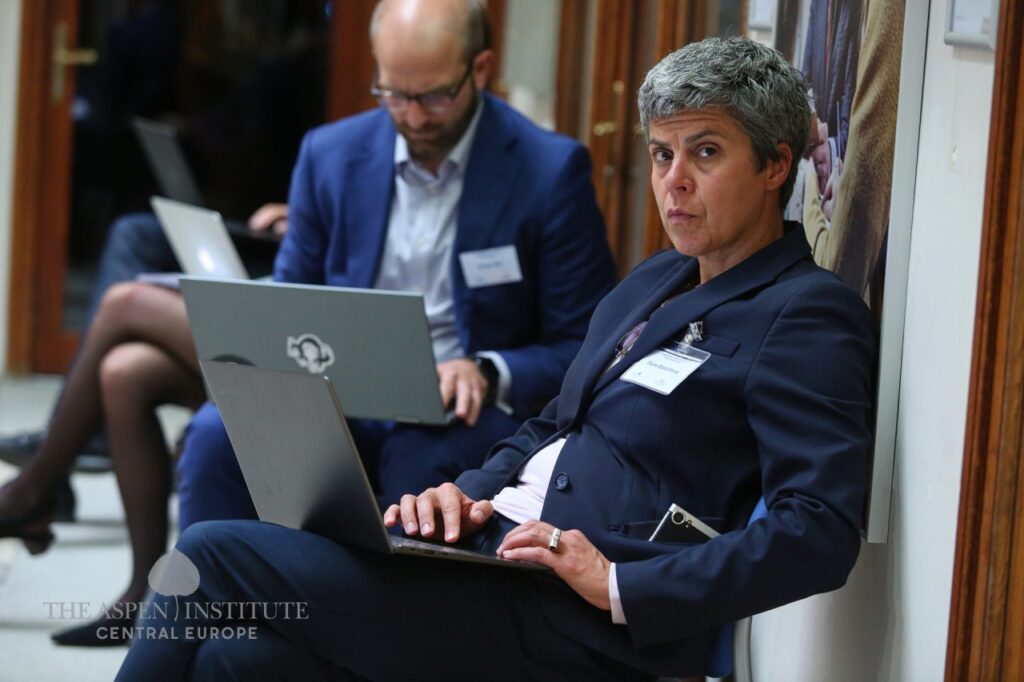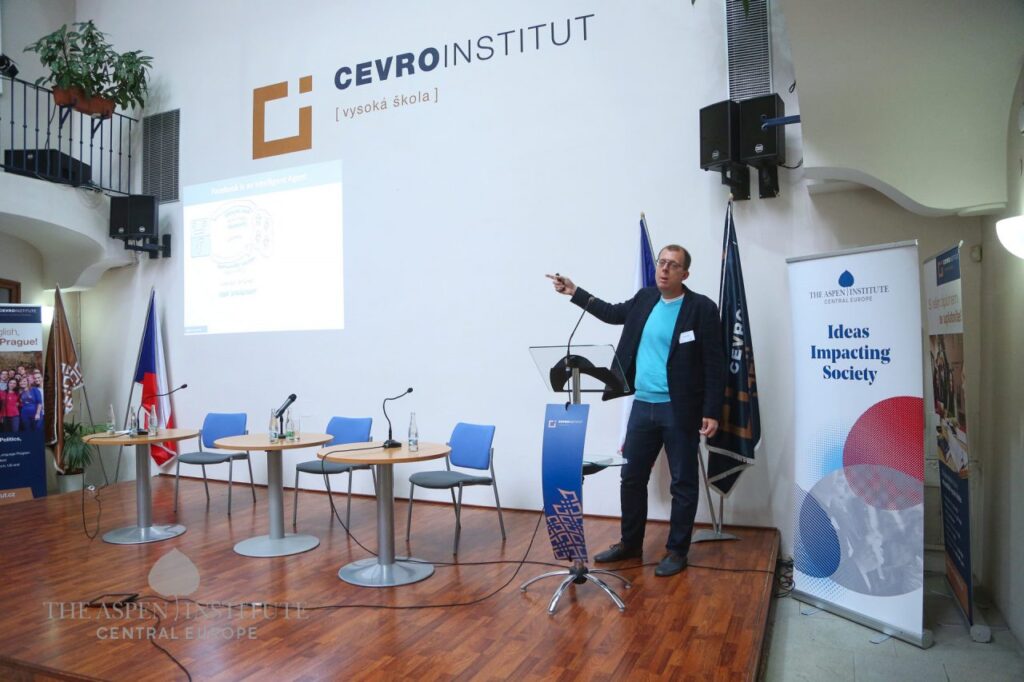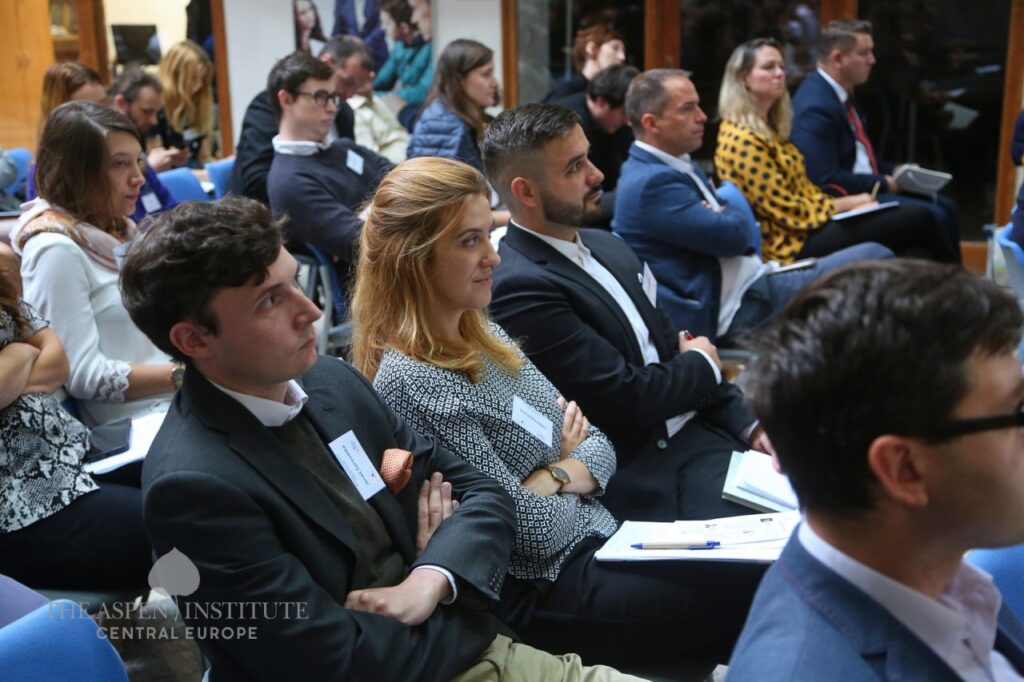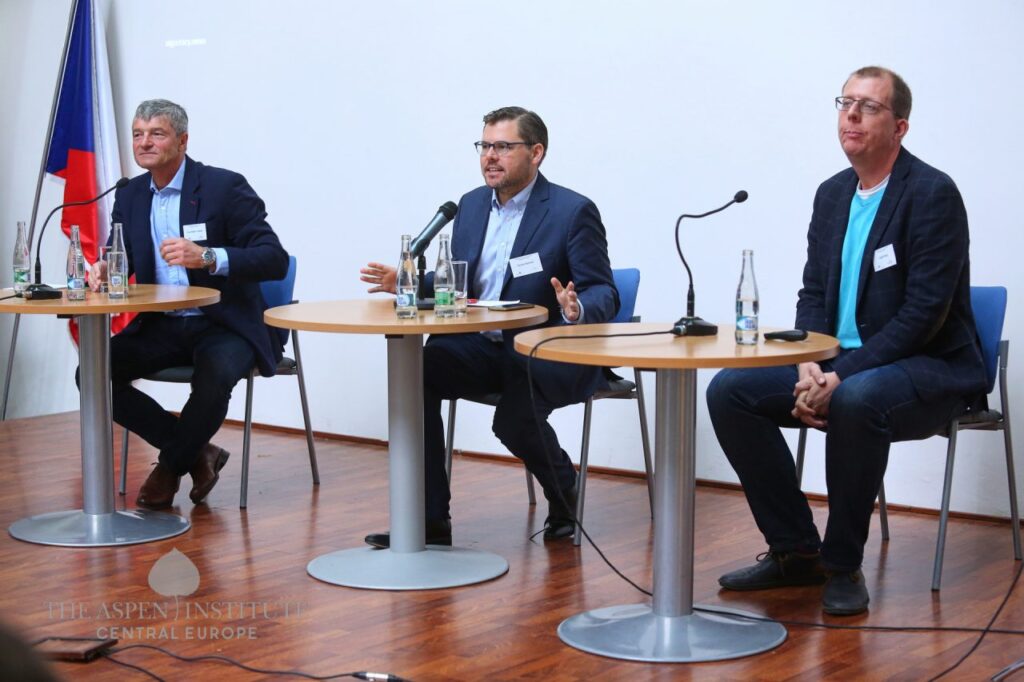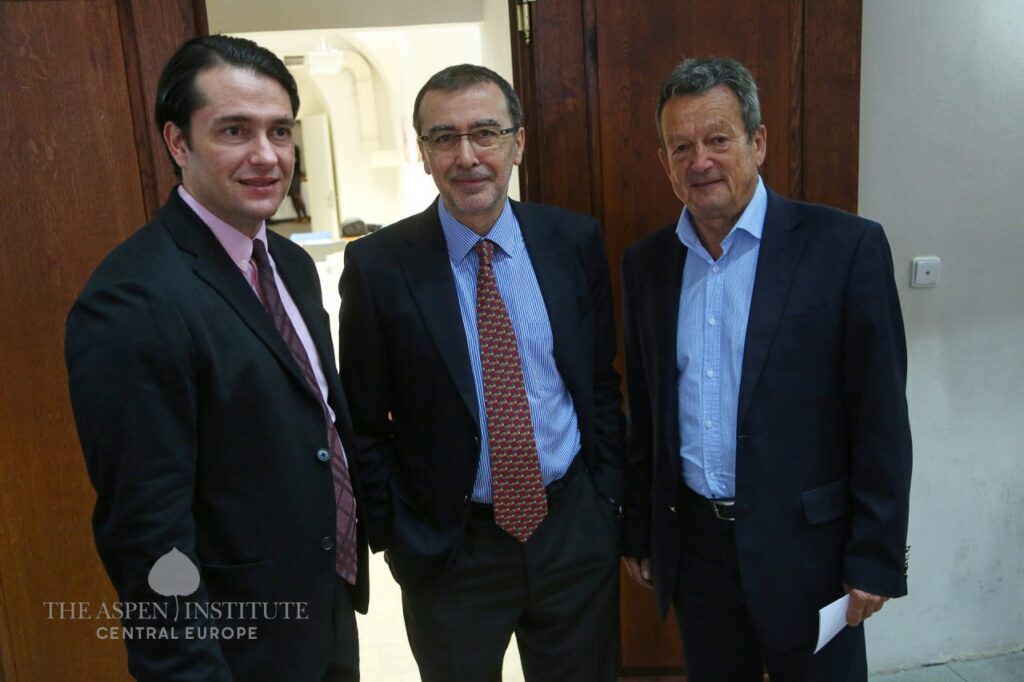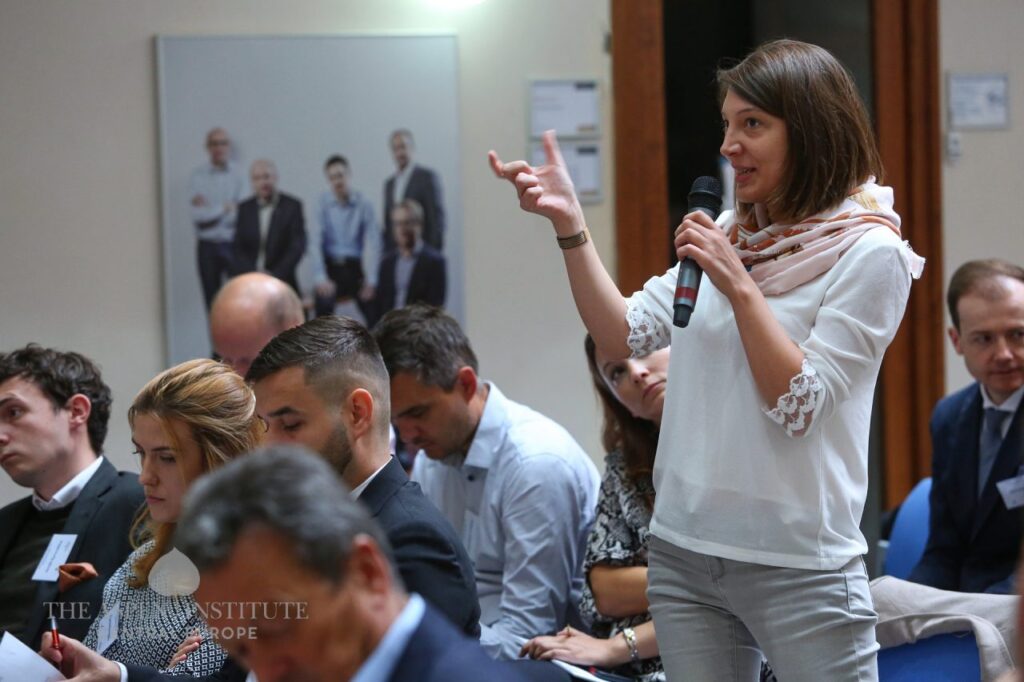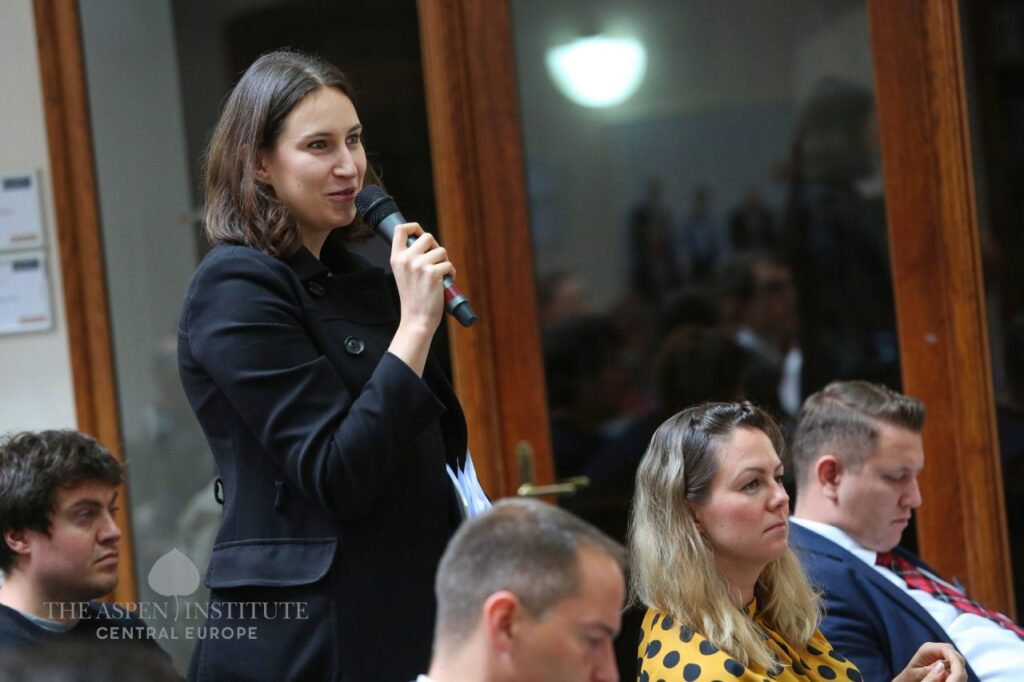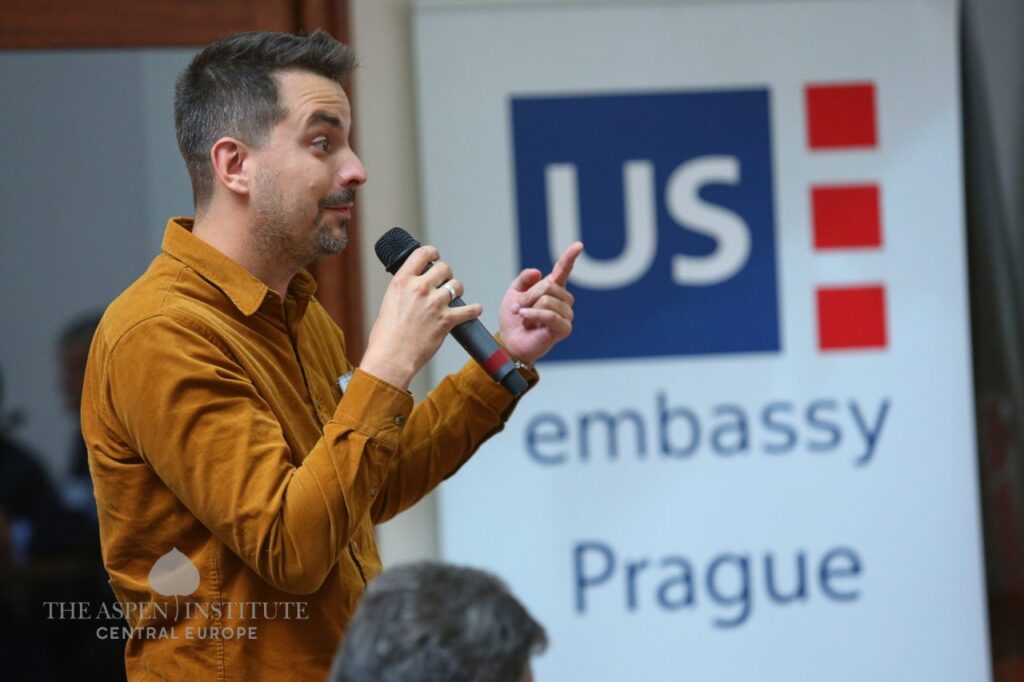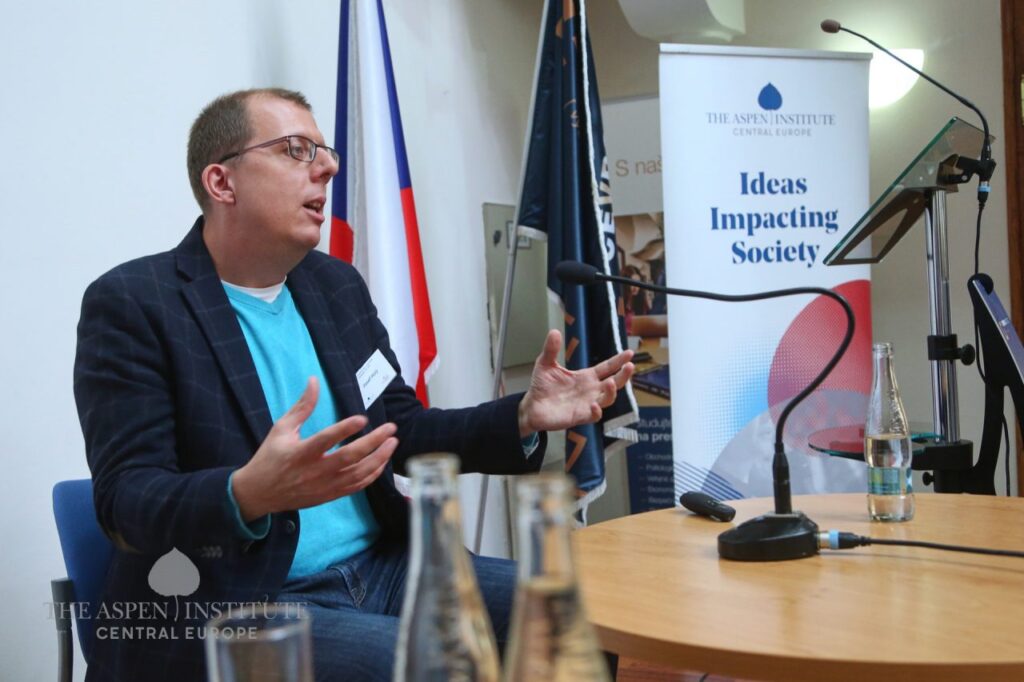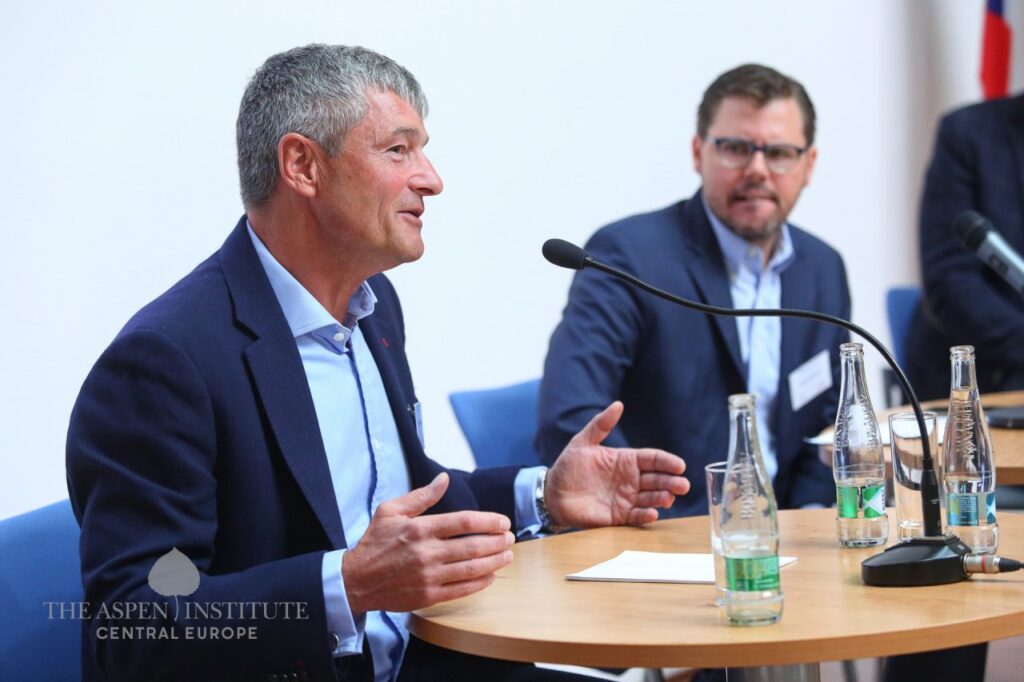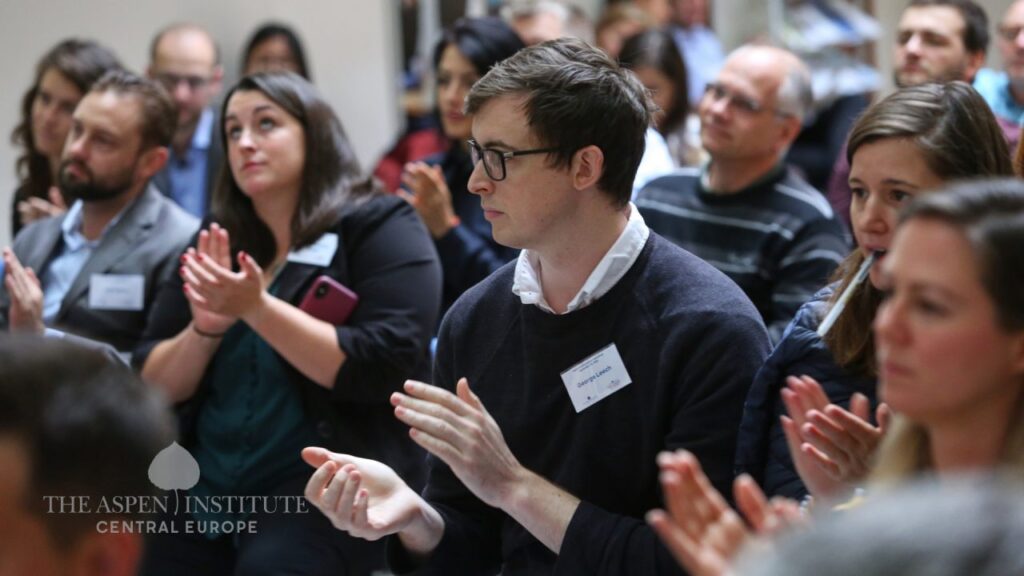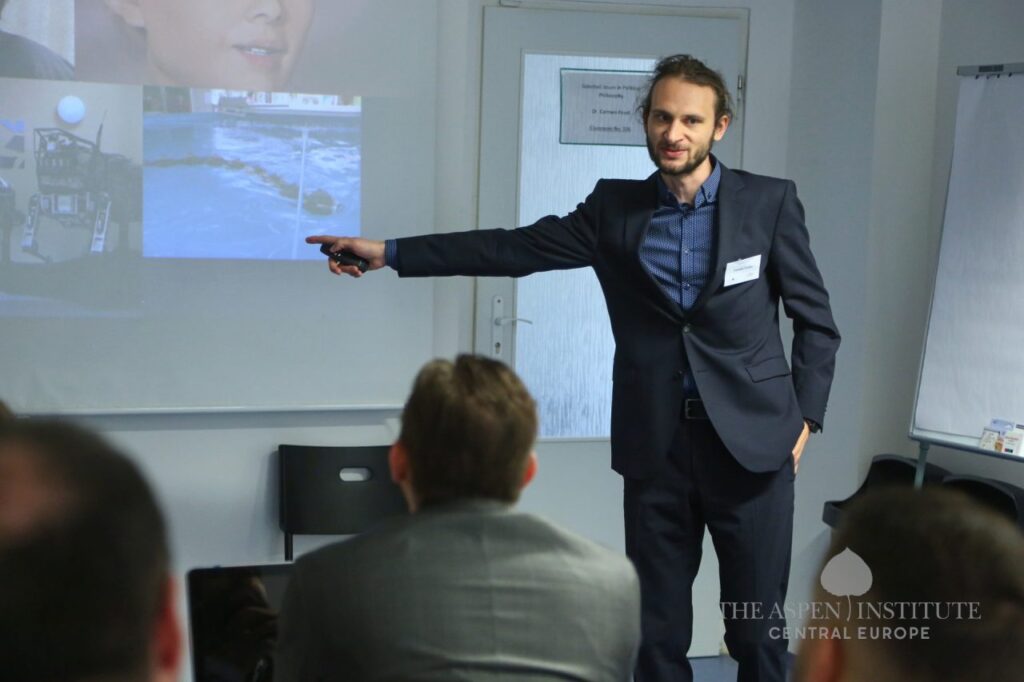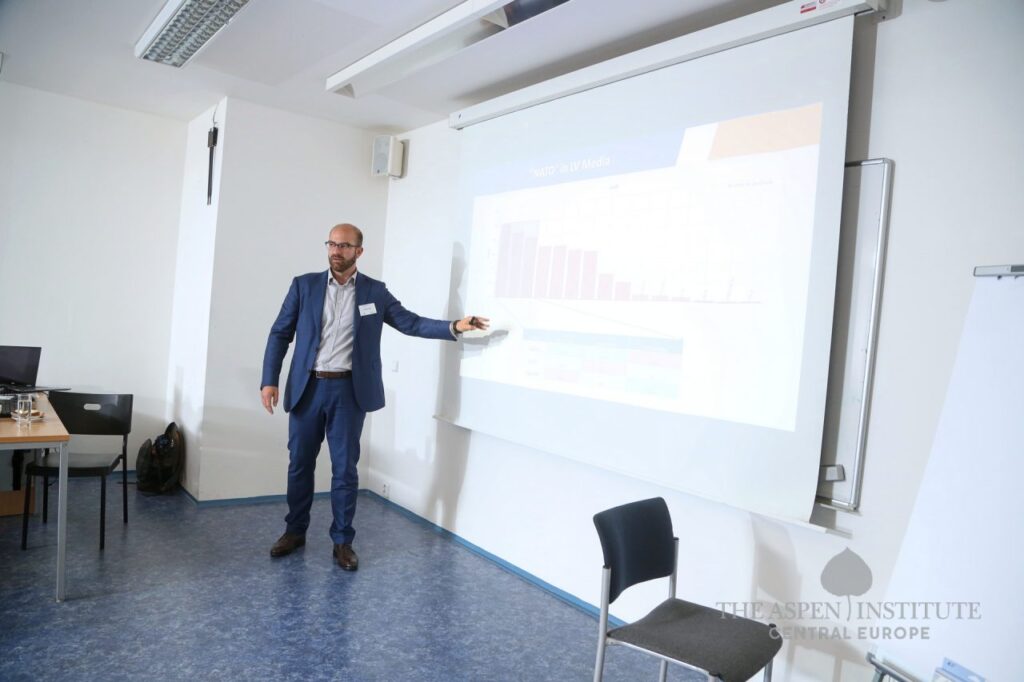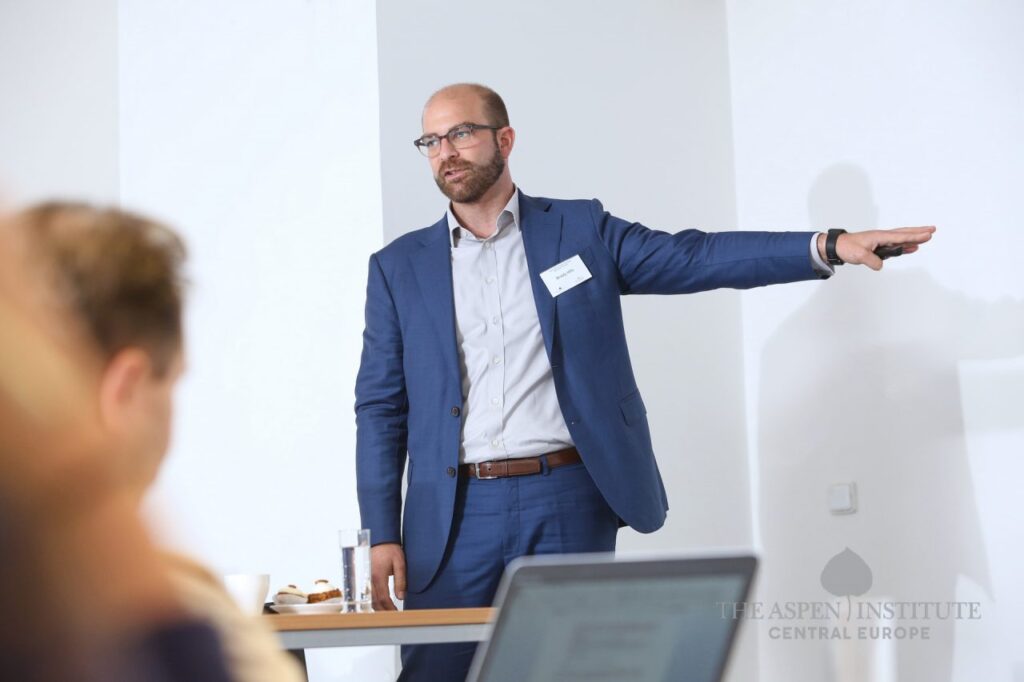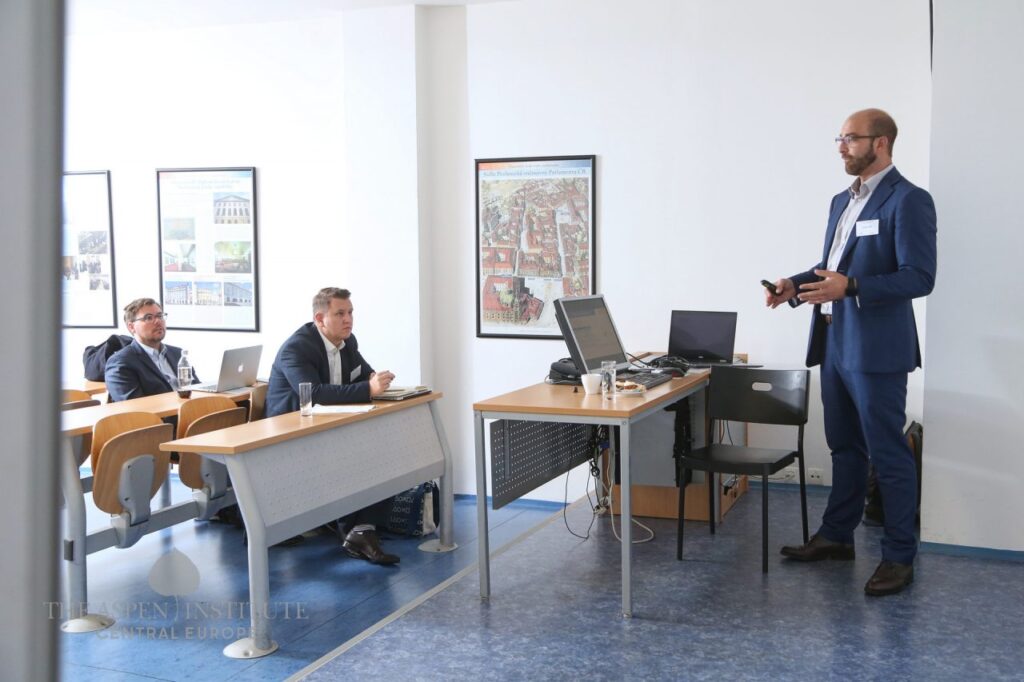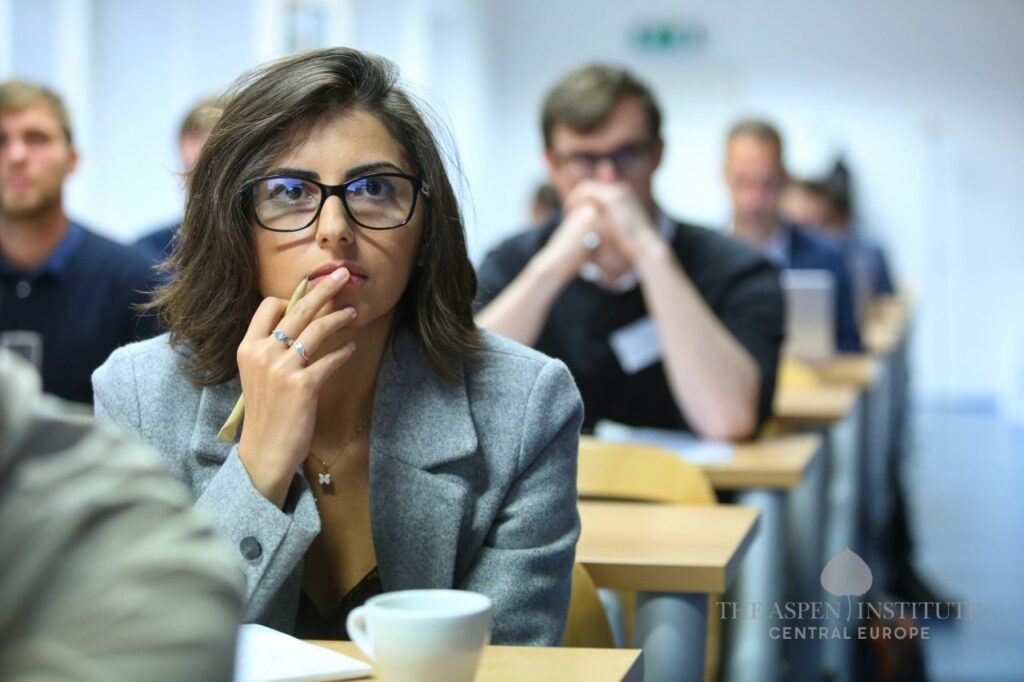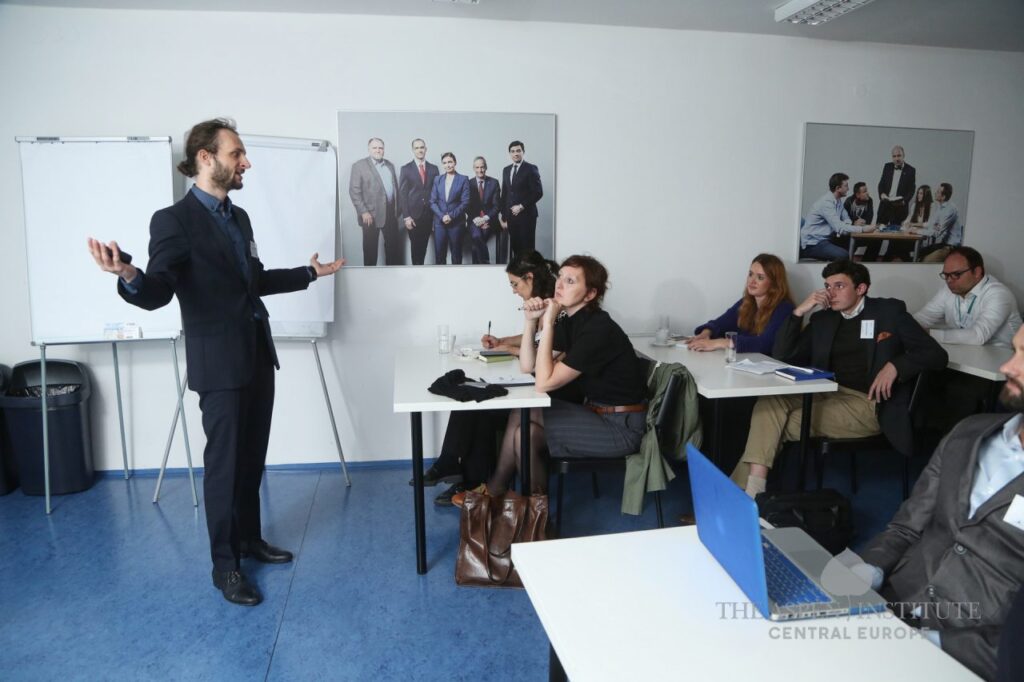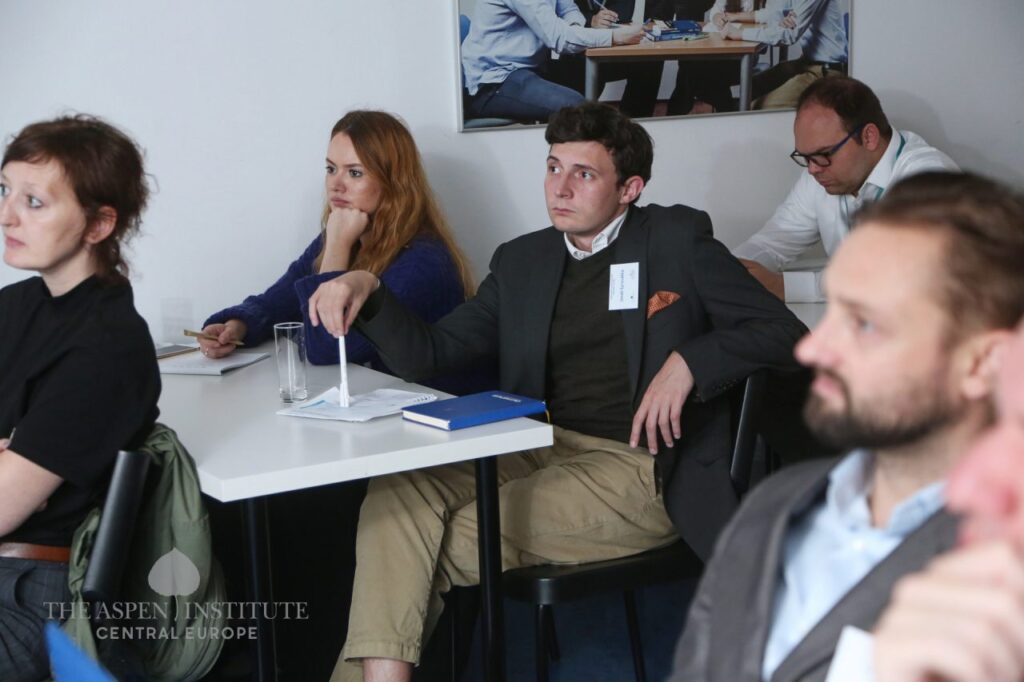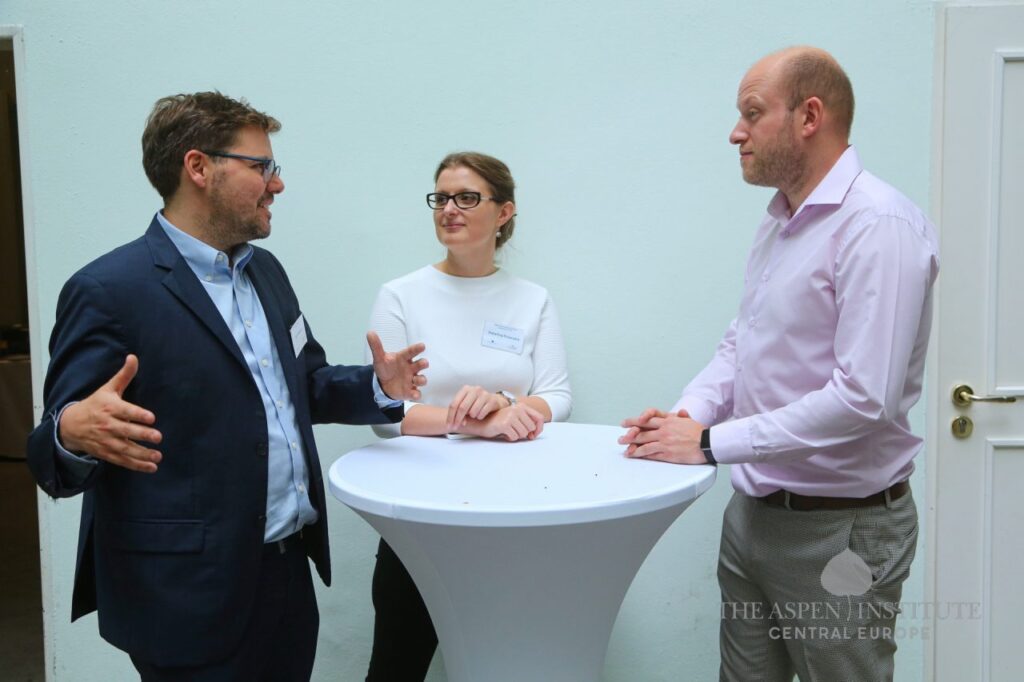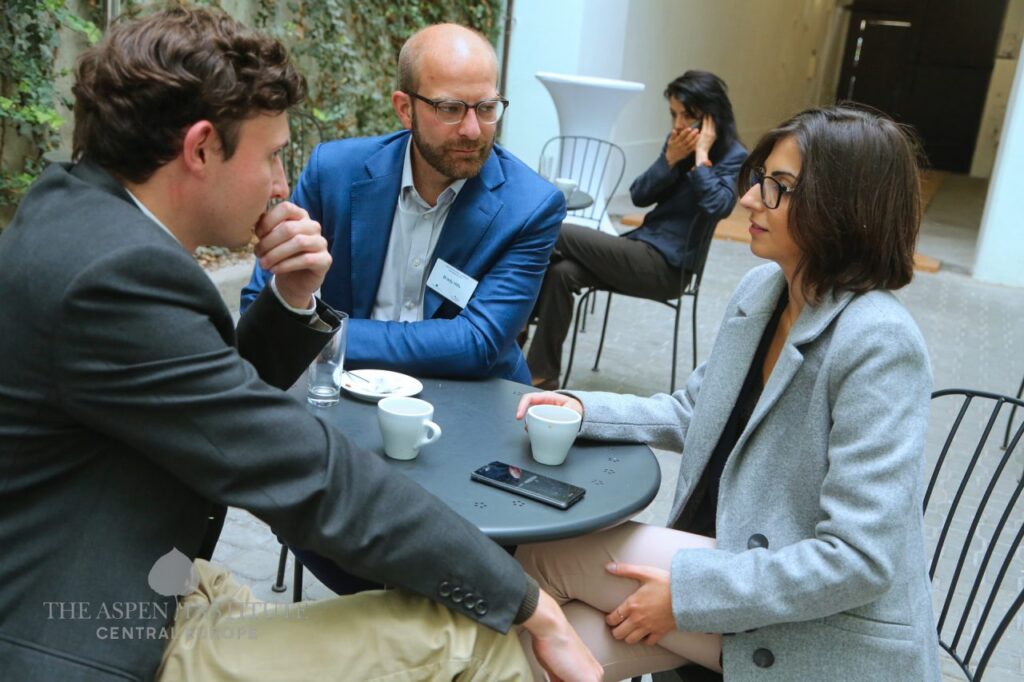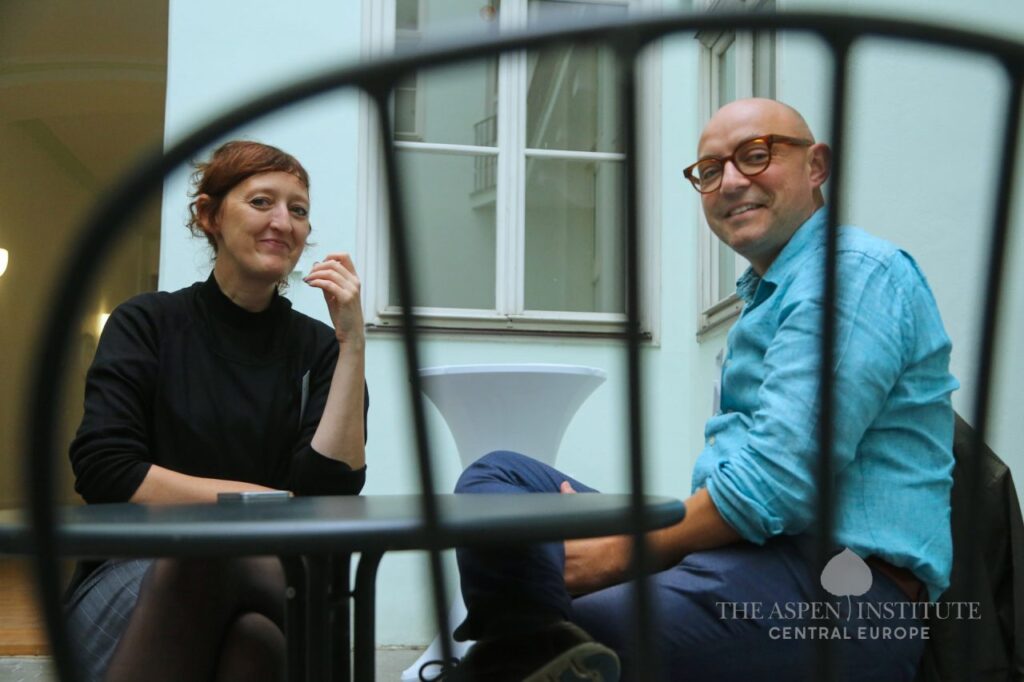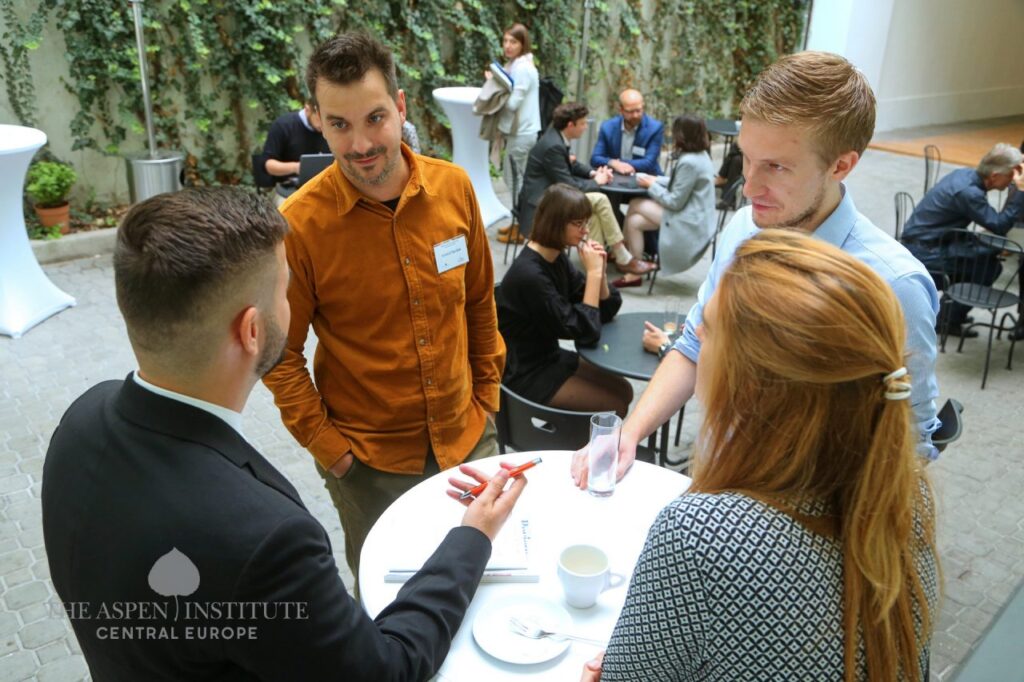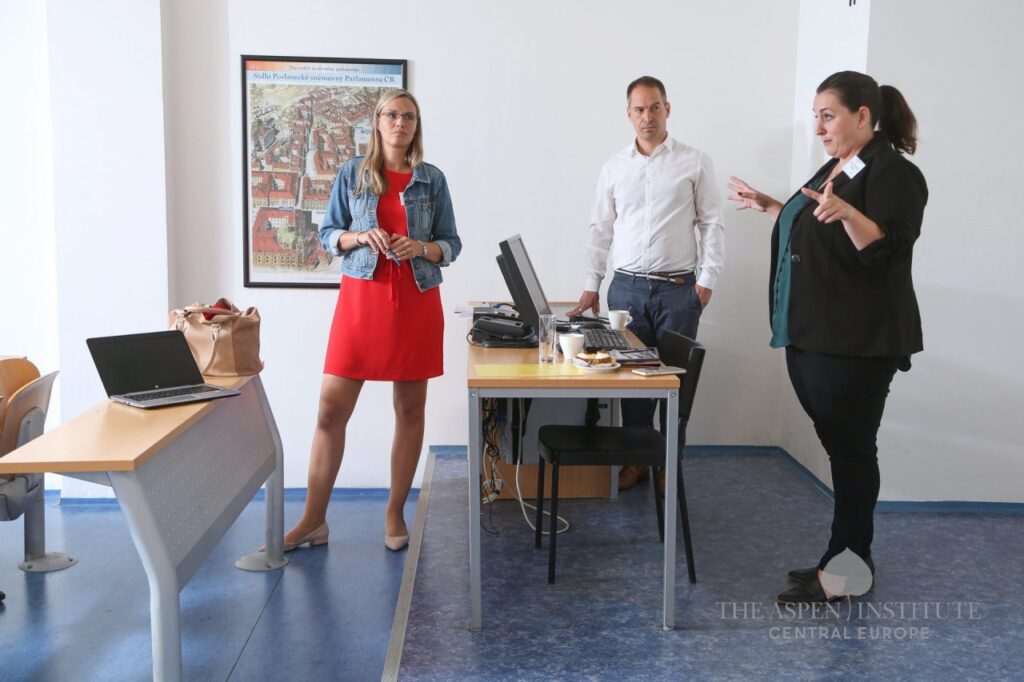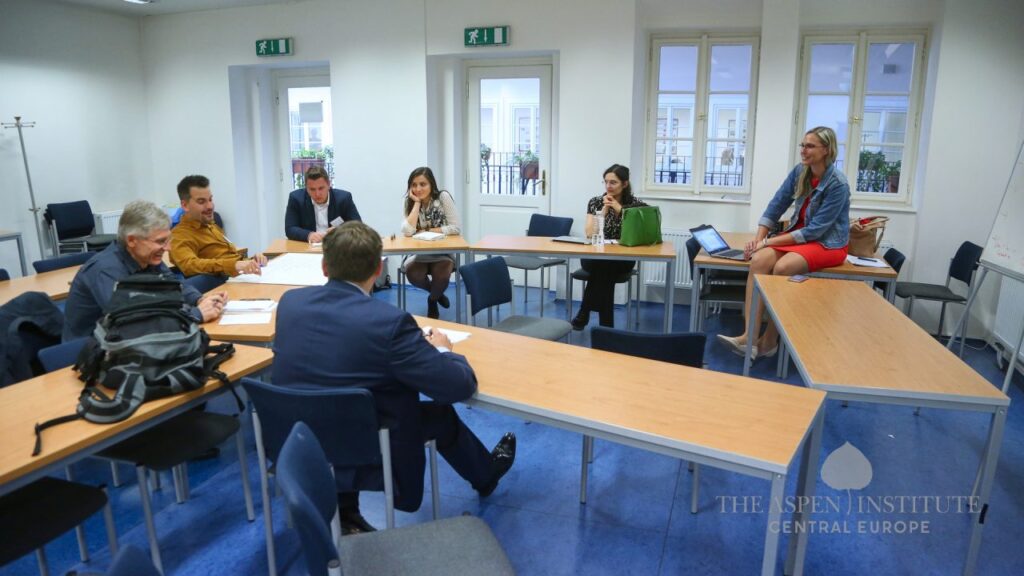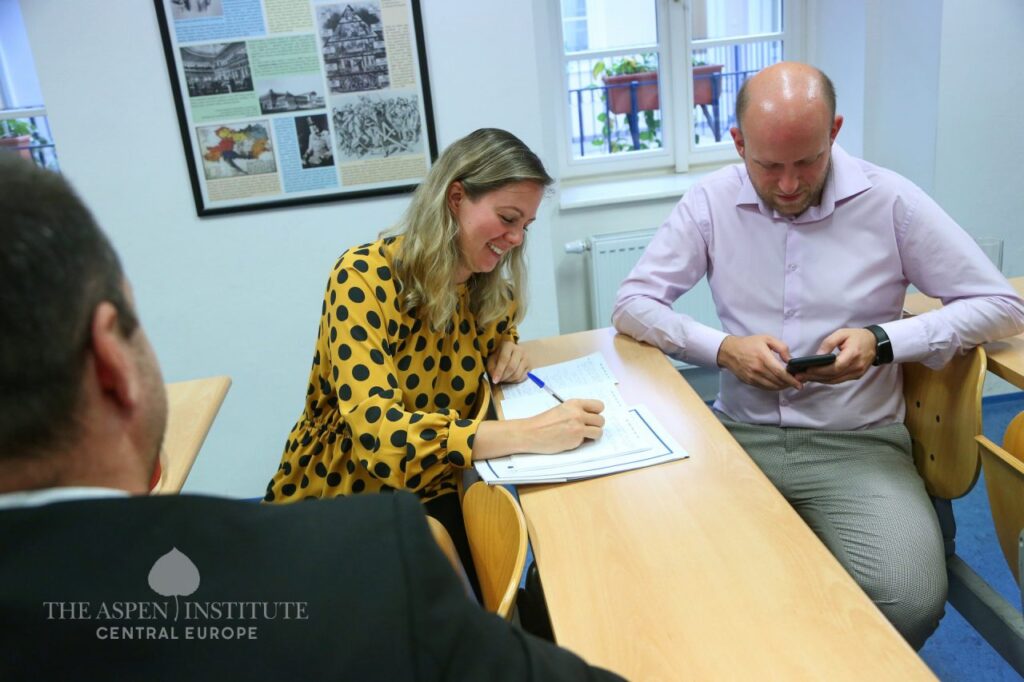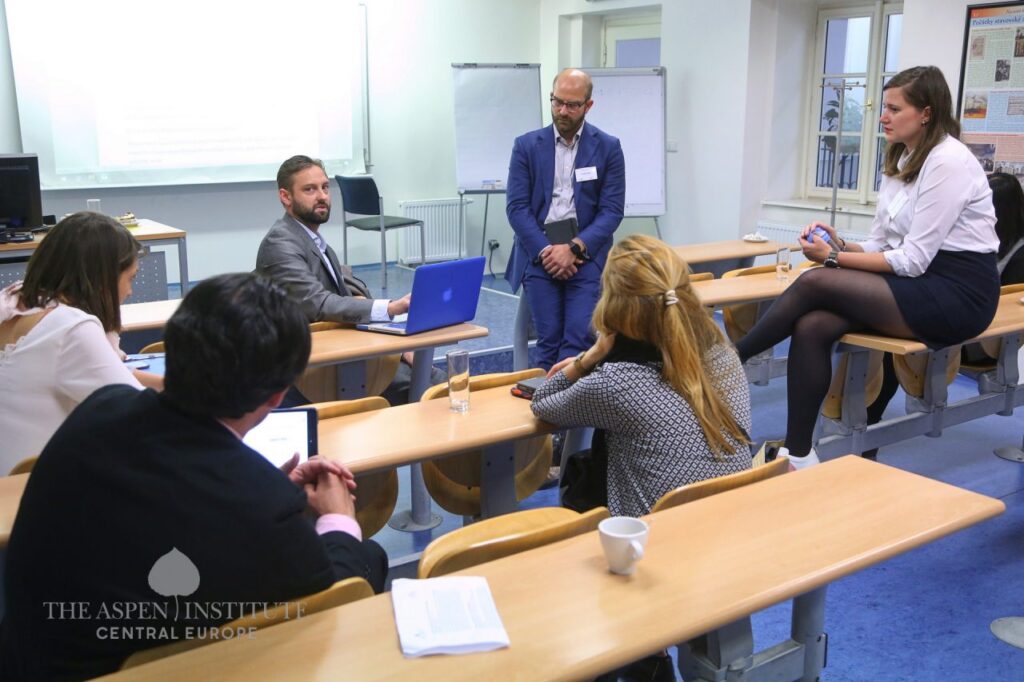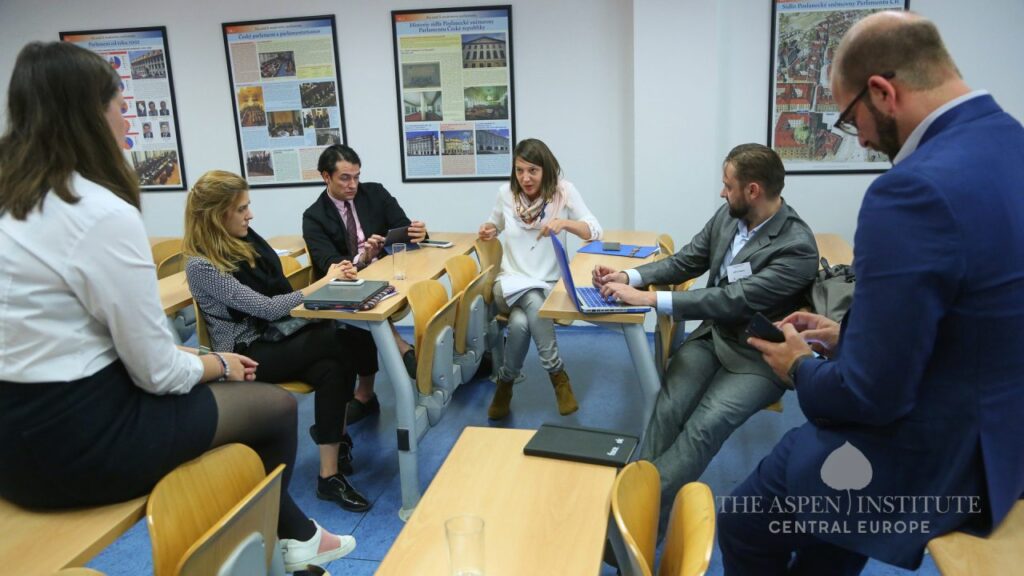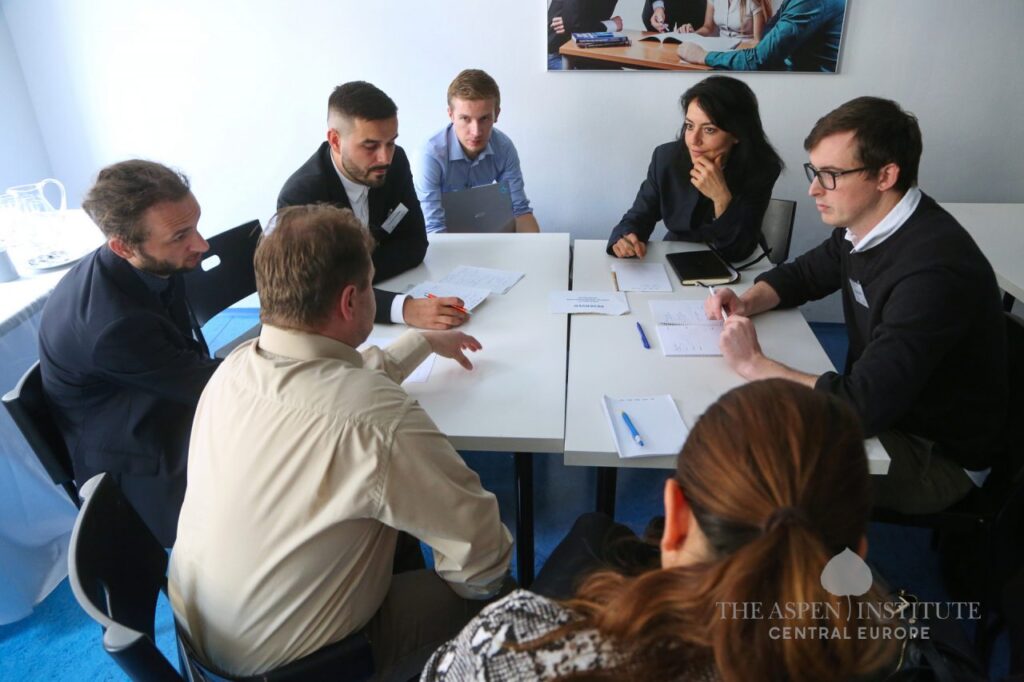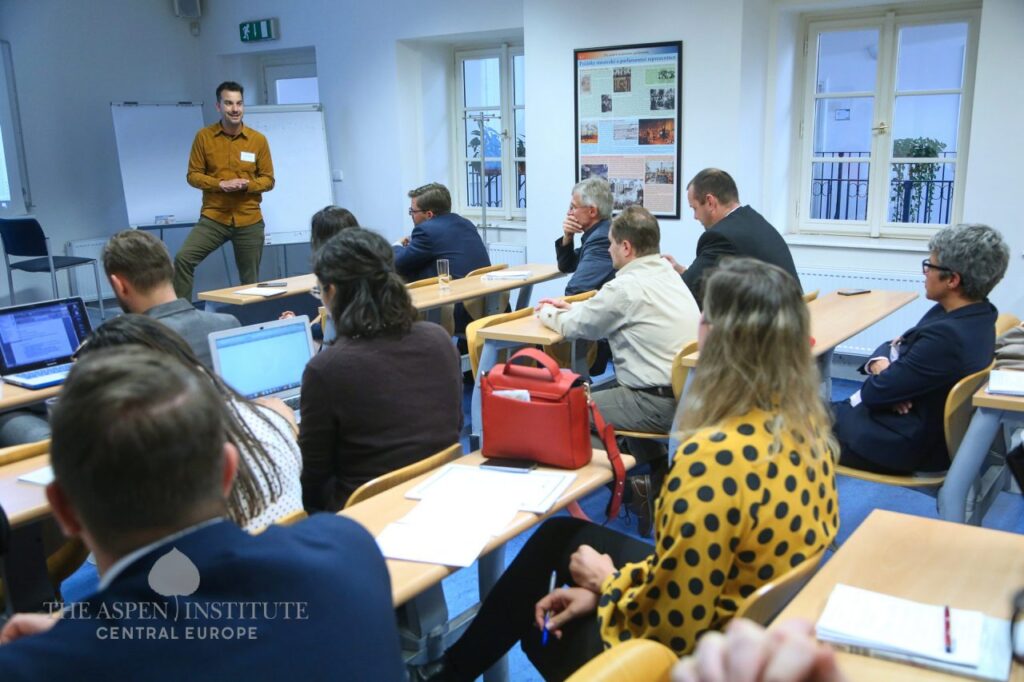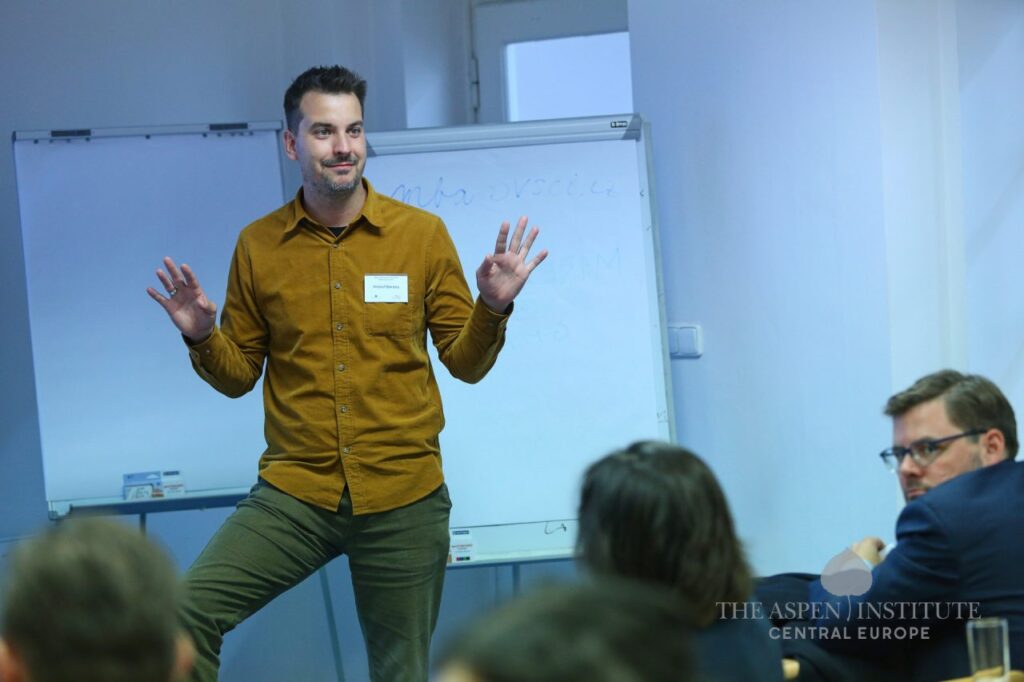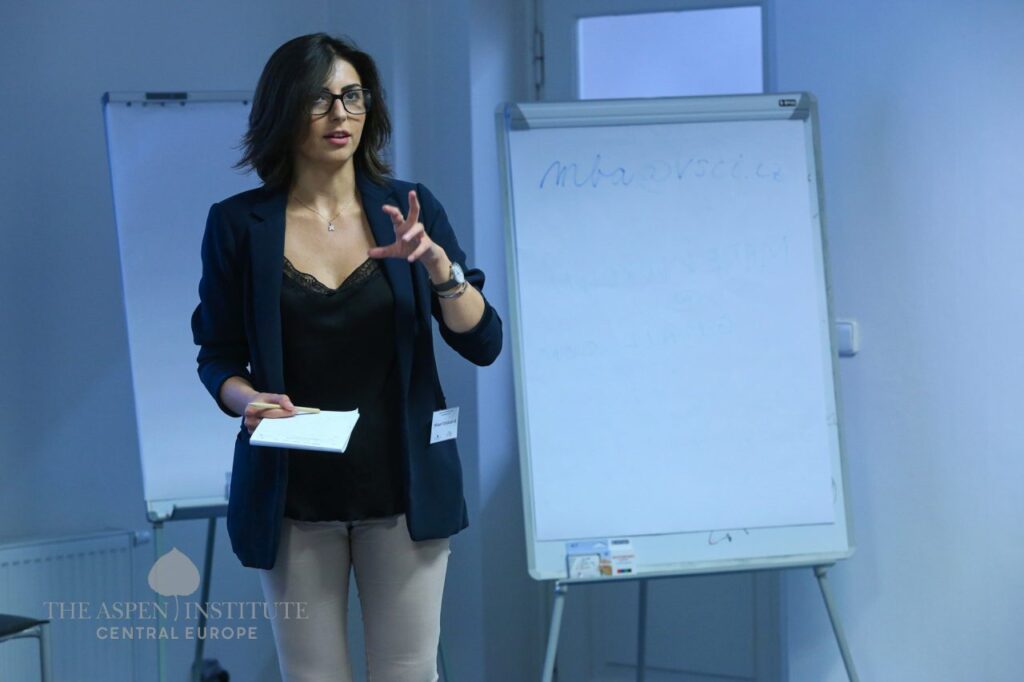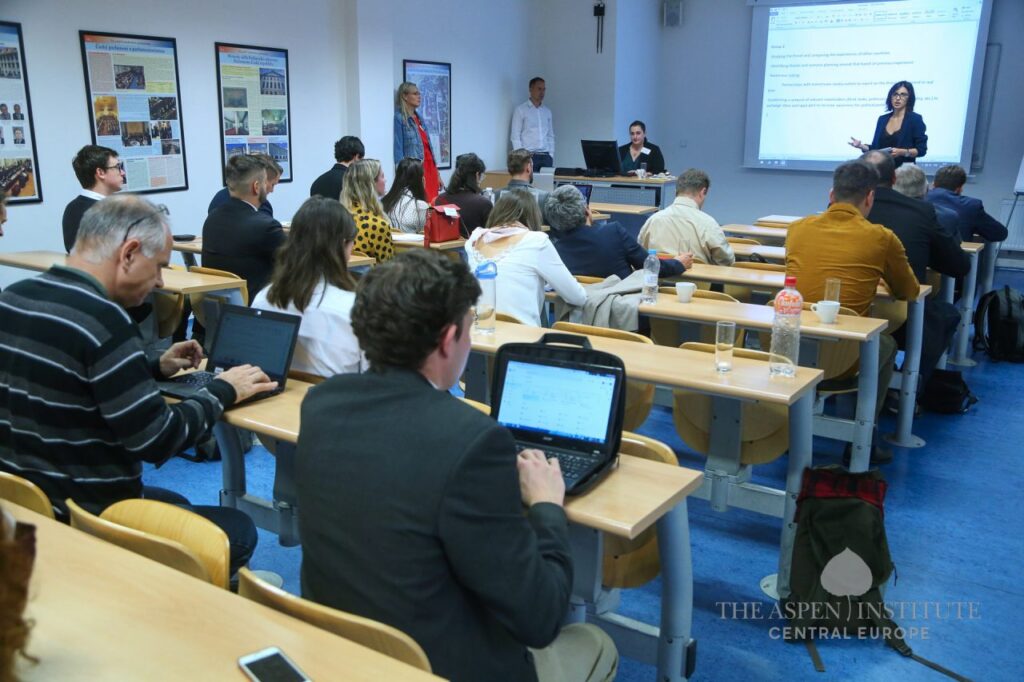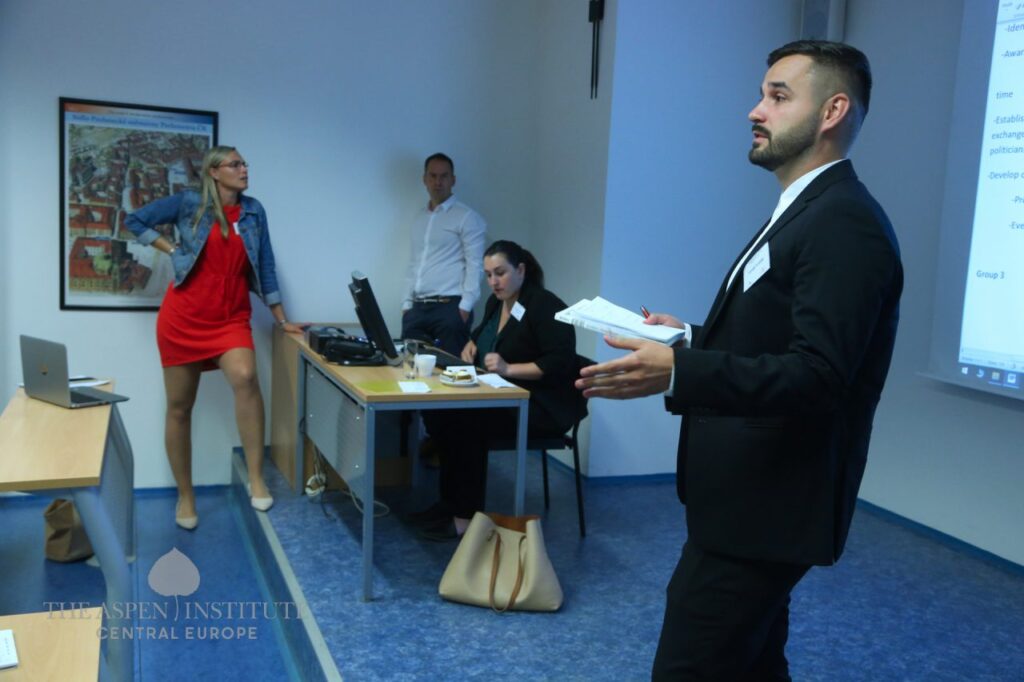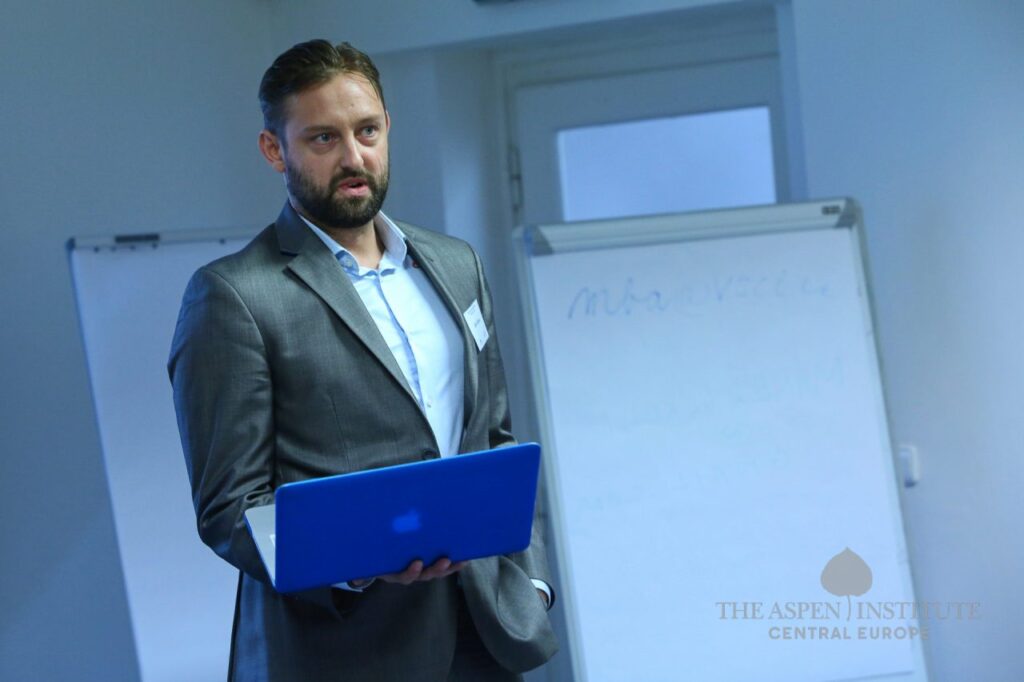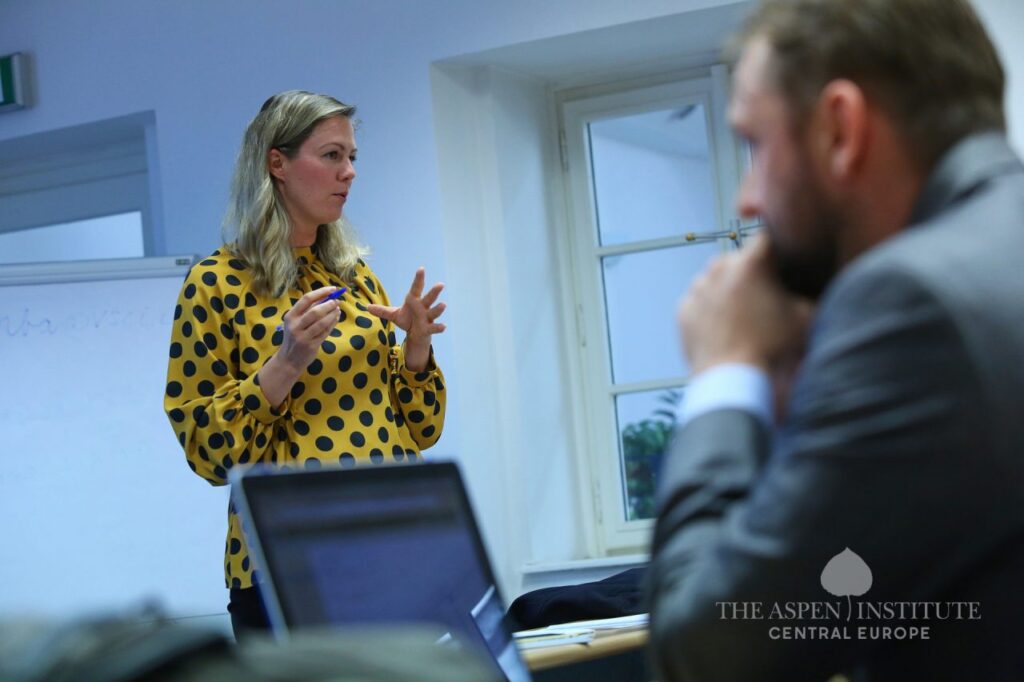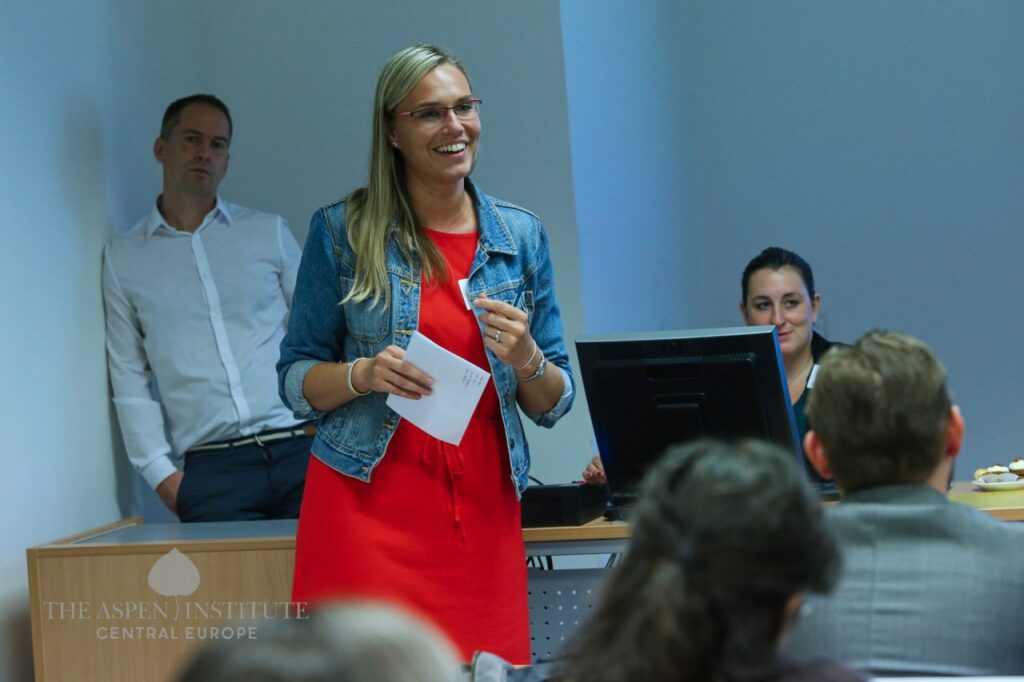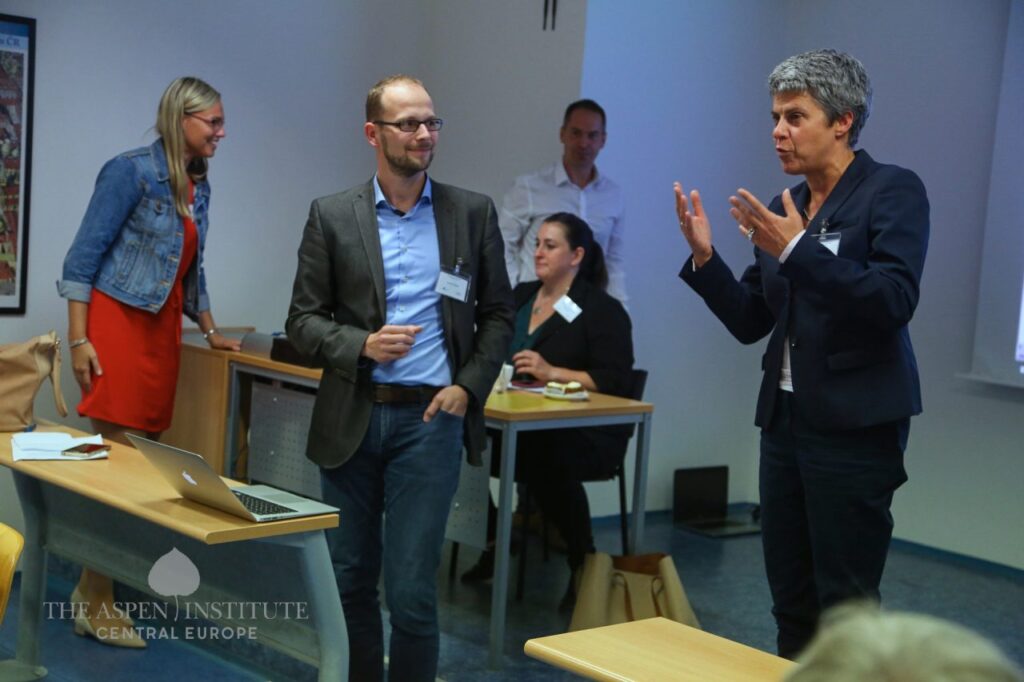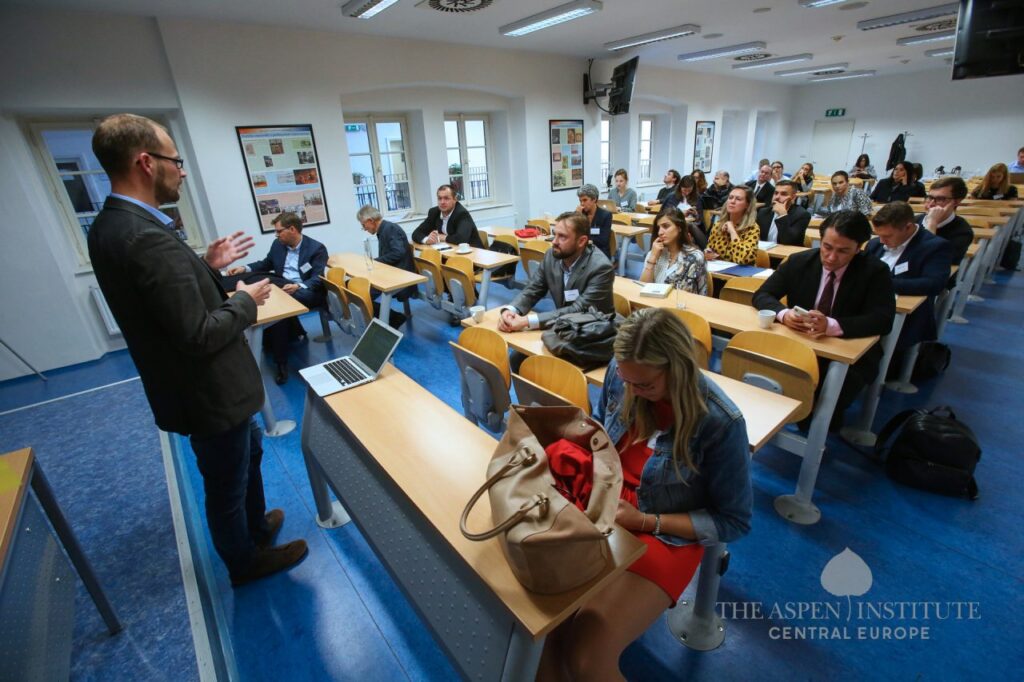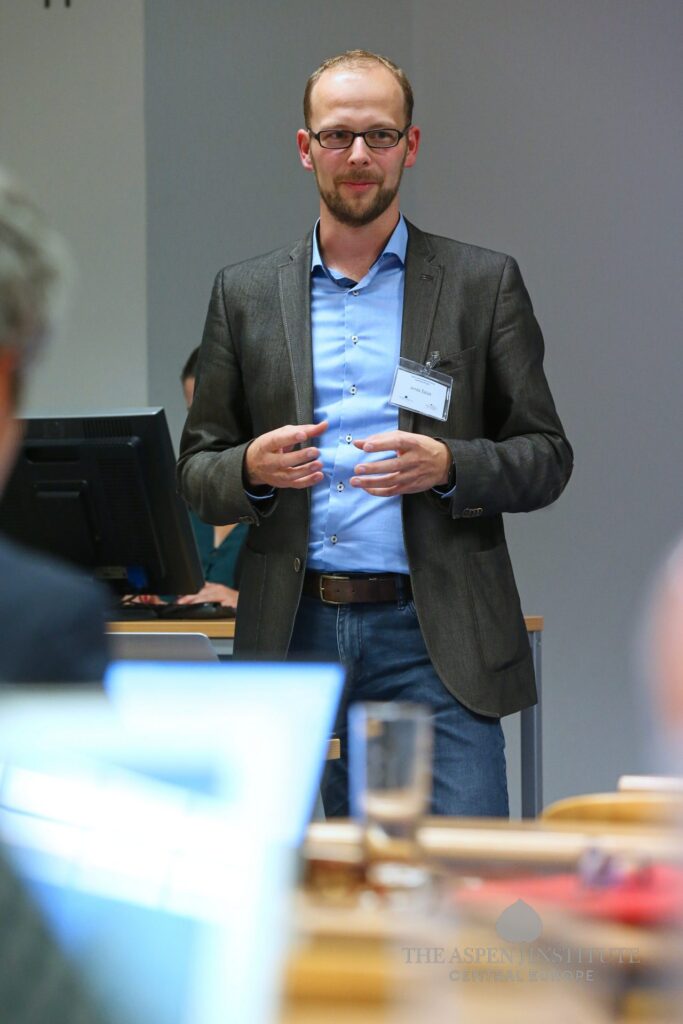Disinformation is real, but we are able to fight it
On 24-25 September 2019, Aspen Institute CE brought to Prague more than 40 distinguished professionals, researchers, experts and practitioners from various areas of society with the most diverse perspectives possible mainly from Central European countries. For one day, starting with an evening public event, they discussed the current state of disinformation and its possible future development. Particular attention was paid to the digital information environment focused on disinformation techniques, including the role of online and social media in people’s perception and acceptance of disinformation. Tools and measures were explored which can contribute in fostering the resilience of societies and individuals against manipulated information.
During the presentations, there was a discussion on today’s media and the overall disinformation landscape. The following points were made by the speakers and the audience. The reach and influence of social and online media in general is much bigger today than the reach of any traditional media or any government of the world. The propaganda and disinformation mostly start on the web, and are amplified on social media (mainly Facebook). Online and traditional media rarely reflect on and adapt to topic based microtargeting and the atomization caused by social networks merely offering just what content the user wants to see. This results in negative user feedback which results in a loss of trust in the media and institutions in general. The social media algorithm works using AI and all the data. One of the views is that algorithms govern today’s society and will do so even more in the future. It is therefore important to be able to protect ourselves and our societies. The principles of social networks may contradict the society principles developed over the last centuries.
Anatomy of fake news by @alandete at @AspenInstCE WS on Digital (dis)information: dubious sources, false experts, lack of separation between opinion & information, amplification. So what happens if AI steps in? 🤔 #studyday #iamback pic.twitter.com/65WFHT76oq
— Dita Přikrylová Formánková (@ditaformankova) September 25, 2019
One of the important things that came up during the discussions, tackling the complex problem of disinformation, was that “it was critical to focus on the importance of protecting free expression and freedom of information in the digital space”. No regulation will ever serve for the good of any society if fundamental rights can be violated. Blocking or banning media outlets is not an answer to the phenomenon of disinformation and propaganda, as it may easily lead to censorship.
Furthermore, “it is an imperative for governments to bring the fight against disinformation to their national security strategies and actually bring the struggle against disinformation to the executive cabinet level”, which plays a crucial role in securing democracy and naturally not only fighting but preventing attacks before they happen.
Objective reporting, independent news and information to a broad group of citizens are ultimately the last line of defense when it comes to countering disinformation.
It is very important to think pro-actively about developing digital literacy and civic education programs that can help people be better prepared for the information they are going to encounter online.
The Reign of Algorithms
The algorithms of social networks are in charge of spreading the content we create. Every algorithm – trying to deliver the desired content, to keep the user on the platform as long as possible and monetize the time spent on the platform – also has various pernicious side effects: e.g. Twitter using the principle of shouting loud to be heard, which is easily manipulated by bots and disinformation spreaders (automated amplification effect), YouTube with the autoplay function serving up more and more extreme content to keep you watching (the extremization effect), or Facebook encapsuling users in content bubbles, further assuring them with hypertargetted content causing radicalization and atomization effects.
The algorithms of social networks currently drive the distribution of content, which is still created by humans. By means of technology and AI development, we are slowly approaching an era, where machine generated content – such as text, but also video and images – will be hard to discern from human creation. This will change the perception of creating and distributing the content, which will be fully automated and based on content personalization and microtargeting for the user. The fake news then become a more fundamental threat because it will be based on an algorithm improving itself and looking much more like trustworthy, human-created content. The main question will be the role of humans in an automated and AI society – our individual (human) integrity should be addressed as an issue.
Objectively, disinformation has always been here and can be identified focusing on various aspects, such as dubious sources, no separation of opinions and information, lack of facts, no corrections or the amplification on social networks and other platforms. People tend to think that the news we disagree with is disinformation. As mentioned by one of the speakers:
We all tend to think that these are the others, who are misled by fake news and believe in disinformation – in fact, all of us are vulnerable to it. The most important thing is to acknowledge that you can be manipulated as well.
"The greatest driver of fake news is partisanship" – a sobering perspective from Hungary in Prague @AspenInstCE pic.twitter.com/Yh79sfDDRC
— Tyson Barker (@tysonbarker) September 24, 2019
We really can combat disinformation
There are several positive experiences supporting the claim that we really can combat disinformation, although it is not easy. In order to do so, there has to be a system or a set of tools and approaches, addressed by the media houses and journalist on the one hand, and the governments, the public and the private sector on the other. The following recommendations have been made by 5 working groups with an inspiring mix of backgrounds on the part of the participants:
The media should:
- focus on quality journalism, cover challenging topics, show and highlight the sources, raise the standards of journalism and increase the trust in media by proper journalist processes,
- highlight and multiply the content across various platforms, change the perception of getting qualitative information,
- find new ways and technologies for fact-checking (real time fact-checking in TV shows and online),
- explain and point out facts by infographics, images and statistics,
- tell people what fact-checking is,
- respond faster and be proactive (facing the entities or governments which are very adaptive in using digital technologies spreading disinformation),
- bring more diversity to the media market and expand media services to areas without access to information.
The governments and politicians – in cooperation with public and private sectors – should:
- not to be too restrictive in information regulation,
- primarily be guarding freedom of speech,
- label real media to distinguish from disinformation spreaders,
- work on increasing media literacy of various target groups,
- support the development of fact-checking technologies,
- create a fact-checking working group bringing together various fact-checking organizations to combine resources and expertise along with traditional media, reporters and even government ministries to promote cooperation,
- look for local representatives in villages or towns to monitor their communities for fake news impacts,
- when using regulations focus on the social media algorithm regulation,
- focus on how to demonetize the disinformation sites to reduce the possibilities of spreading their content,
- support tools and programs to build up trust in institutions and political parties (e.g. by supporting codes of conduct about not using disinformation, bots),
- involve a governmental cybersecurity strategy team,
- promote fact-checking and raise awareness of the elections (using campaigns, fact-checking working groups, counter speech groups, online campaign targeting the disinformation consumers, etc.),
- involve tech companies and scientists in handling these issues.
It was a pleasure to participate in this debate on disinformation put on by @AspenInstCE. Thanks so much for having me, and for a very interesting event! https://t.co/X0PmQyuJIU
— Megan Metzger (@meganicka) October 8, 2019
Code of Conduct, shining for better times
A separate discussion was dedicated to the possibility of developing and establishing a Code of Conduct to be agreed on between all the political parties, promising not to use disinformation, bots, trolls, or amplification tools. There was an agreement among the workshop participants that even if the Code of Conduct is not legally binding, and there is little hope that all the parties will adhere to it, it has been seen as an important positive step, as progress, and as an opportunity to raise awareness. There were several reasons given as to why (even anti-democratic) parties would sign such a Code of Conduct, e.g. motivated by its own PR “protecting the country and citizens” against disinformation. The observance to the Code might be initially supervised by the public, experts, civil society or other political parties, without any legal binding or penalties. It may develop over the years in small steps, and in the future, for example, funds and airtime on TV during political campaigns could be tied to compliance with the Code of Conduct.
Disinformation has always been here. The digital transformation has increased its impact and spread dramatically. While disinformation in the digital world erodes the roots of democracy more than ever before, it has become more important to understand the role and all aspects of digital technology and AI, to be used to face disinformation effectively and defend democratic principles. Democratic states and societies have to increase their ability to protect themselves, but when doing so, fundamental rights have to be guarded and the positive impact of the development of digital technologies must not be threatened; digital technologies empower freedoms such as free access to information, the public’s right to know and the right of individuals to seek and receive information and ideas of all kinds regardless of borders. These must not be violated. States should promote a free, independent and diverse communication environment, including media diversity, which are crucial tools to address disinformation and propaganda. The impact of digital spreaders’ activities has to be minimized, be it unfriendly states or non-state bodies. Eventual restrictions and regulations may only be imposed on the right to freedom of expression and freedom of the media in accordance with international law. Countries and societies also have to look for innovative solutions, which can react in time and appropriately to malicious use of digital technology, be it in the field of disinformation manipulating individuals and distorting public opinion, or any other cyber threat.
The workshop was organized by Aspen Institute CE within a series of conferences, seminars and workshops organized by Aspen Institute Germany, Aspen Institute Spain and Aspen Institute Central Europe under the title Tech and European Society looking at the societal impacts of digital technologies and AI.

